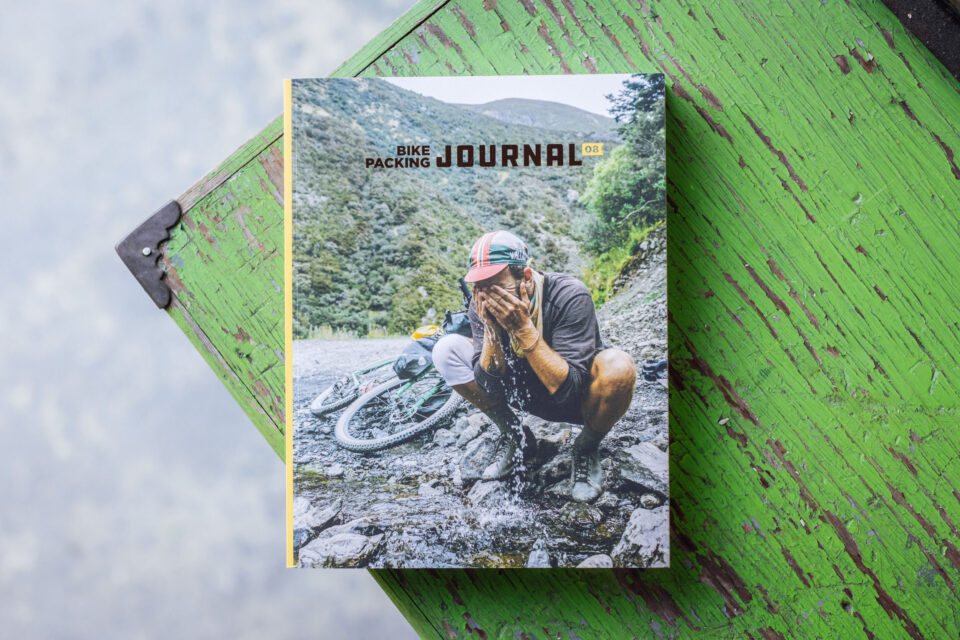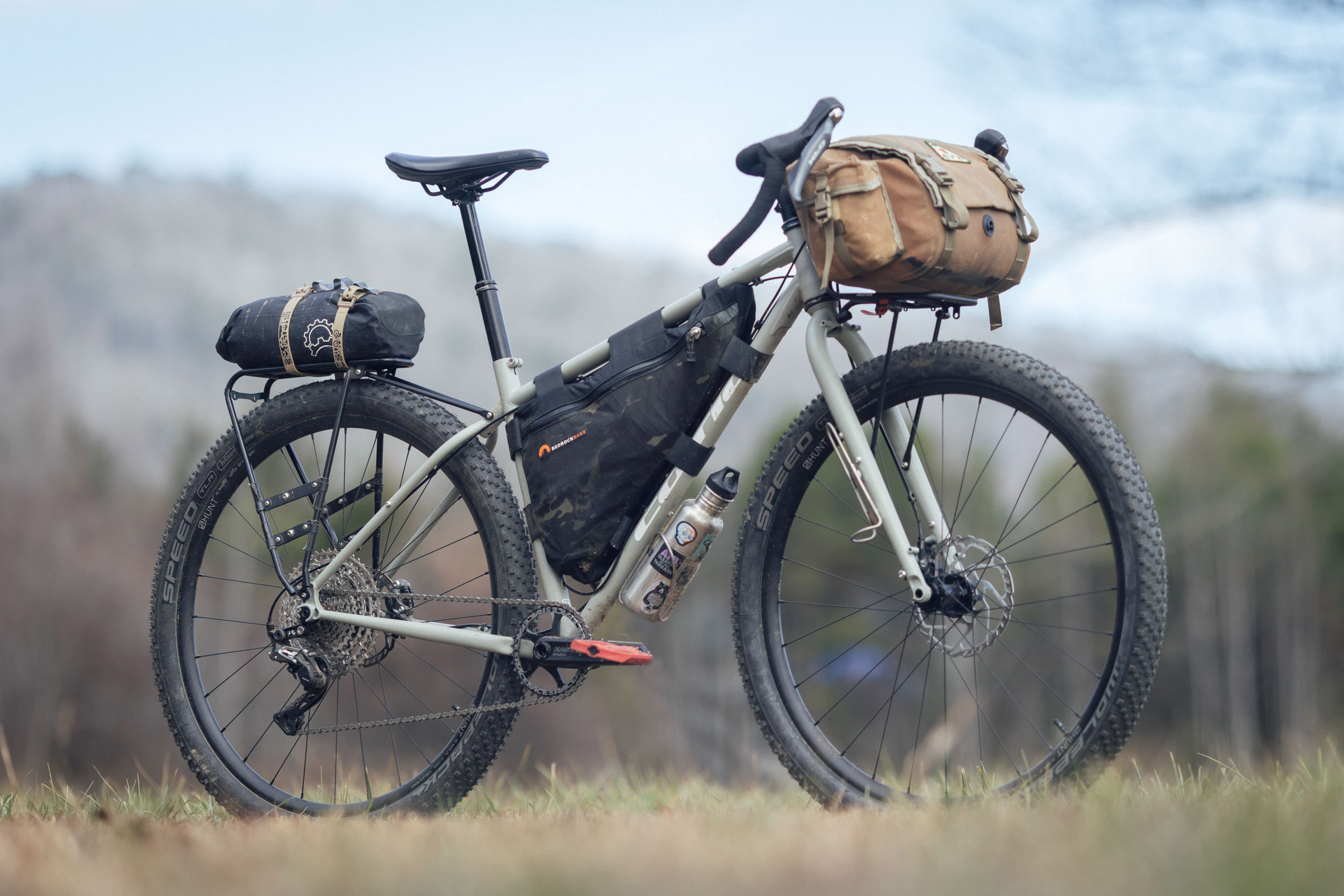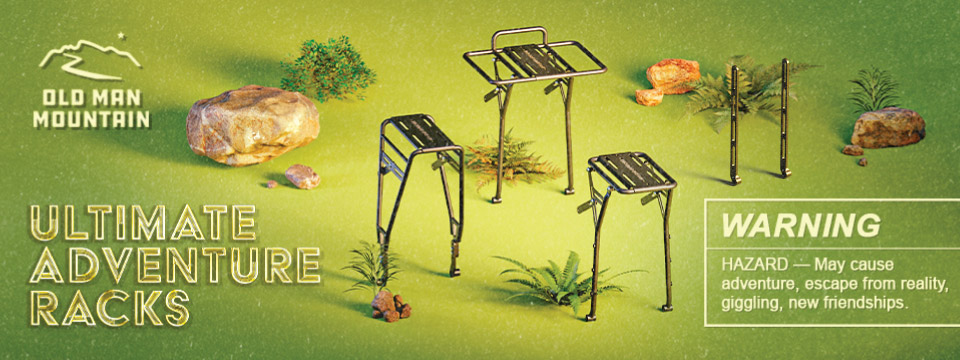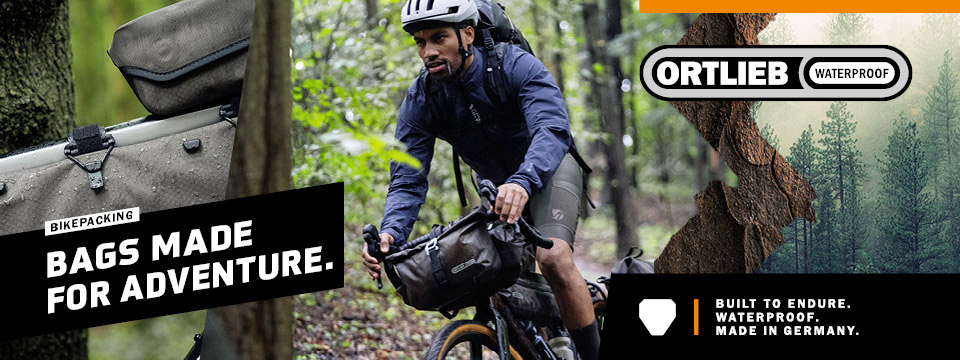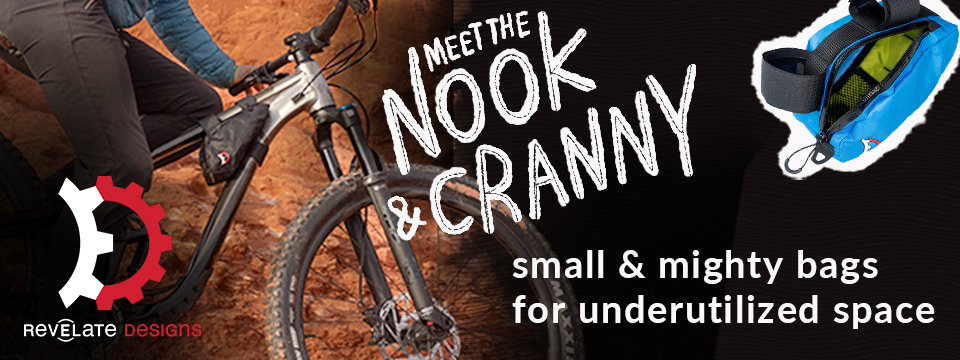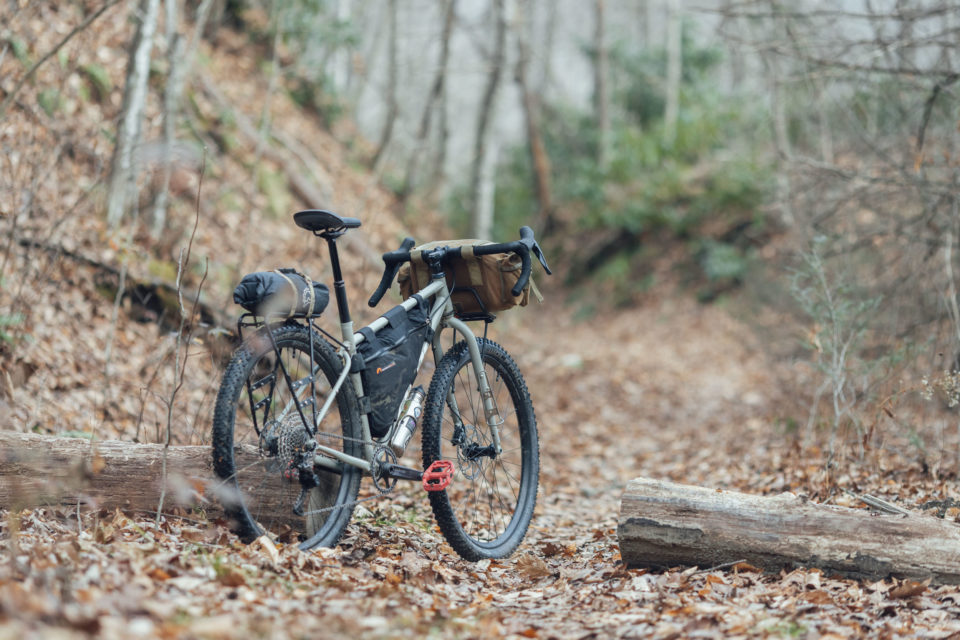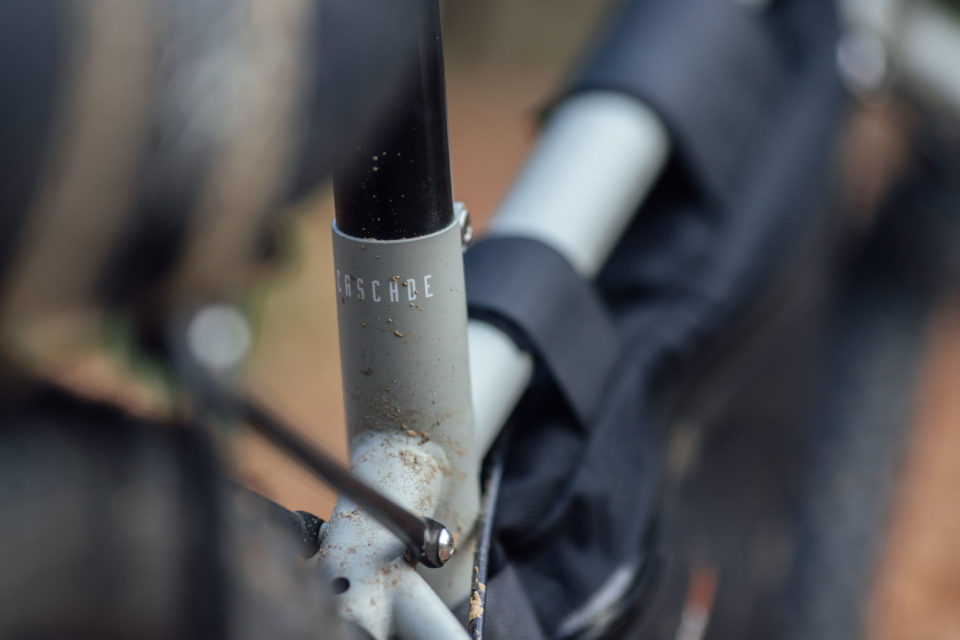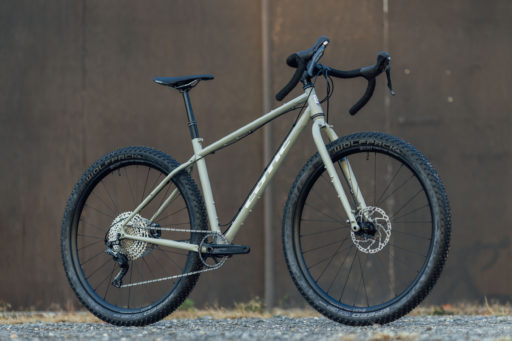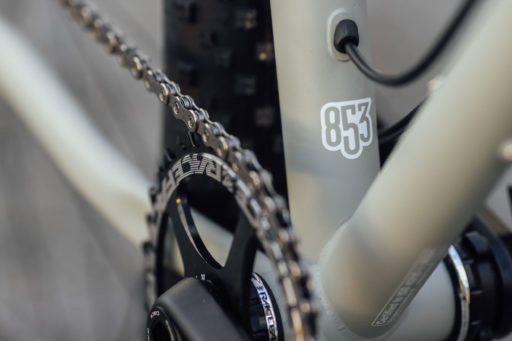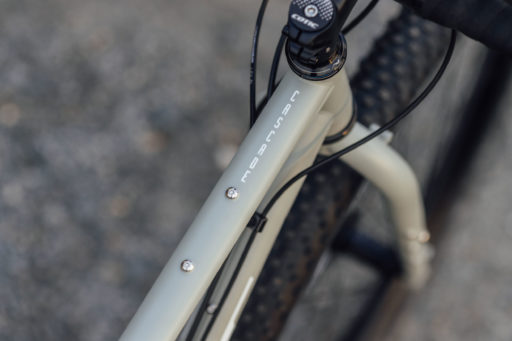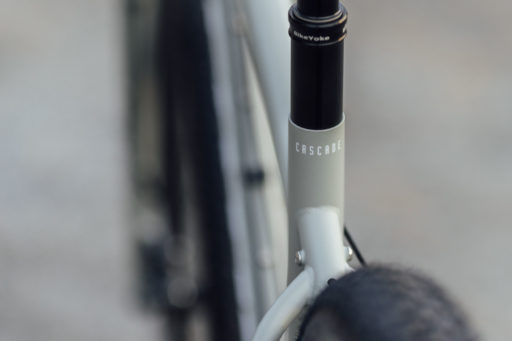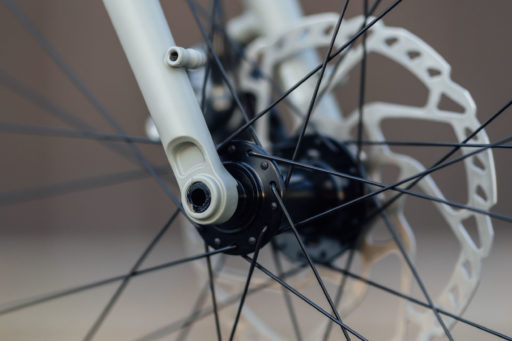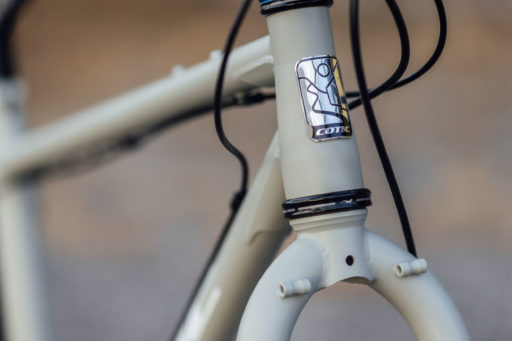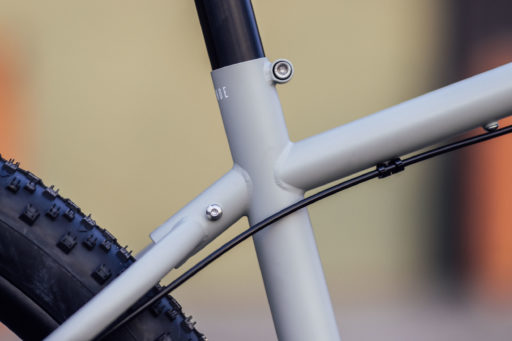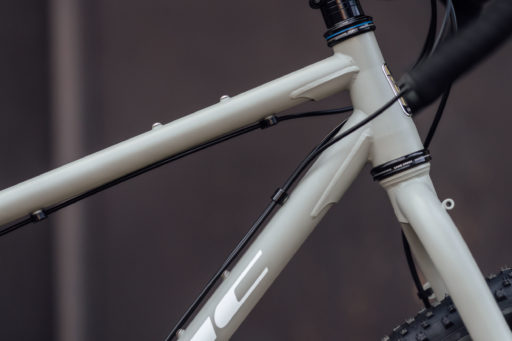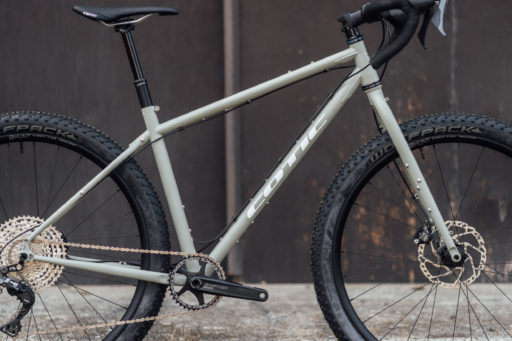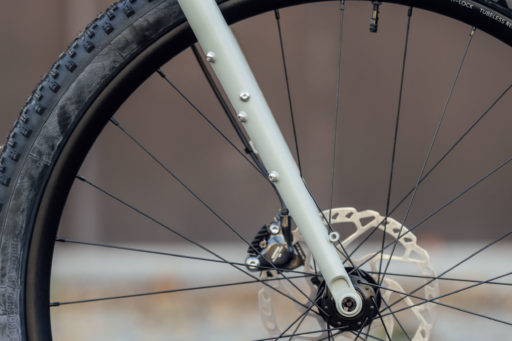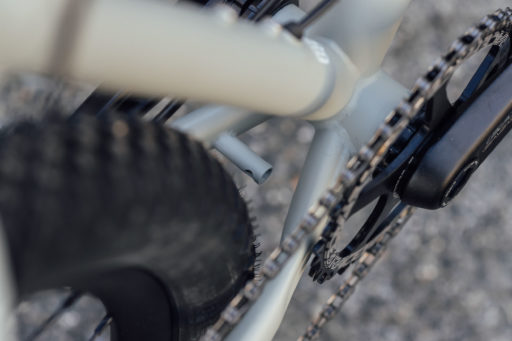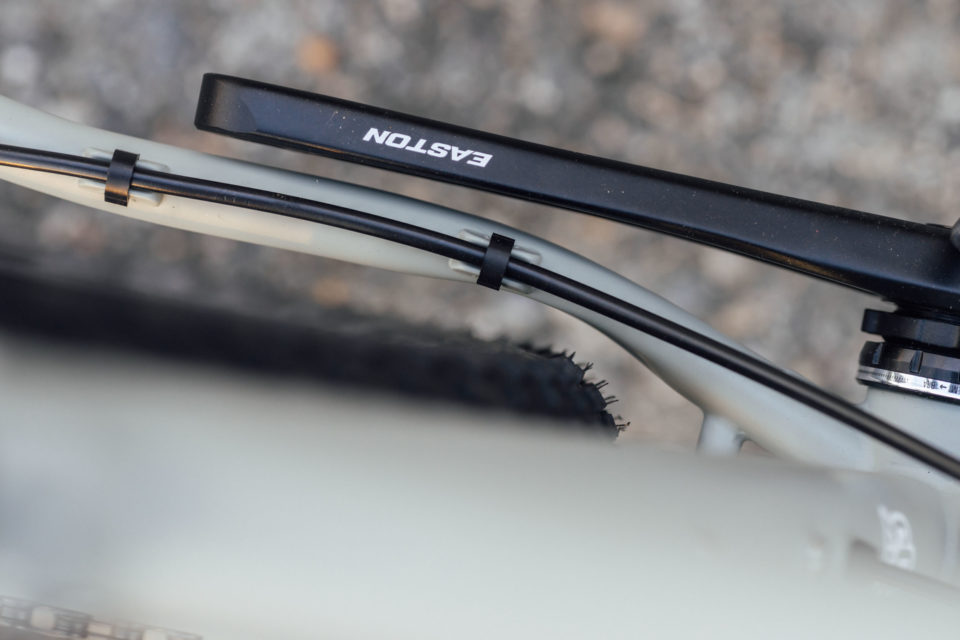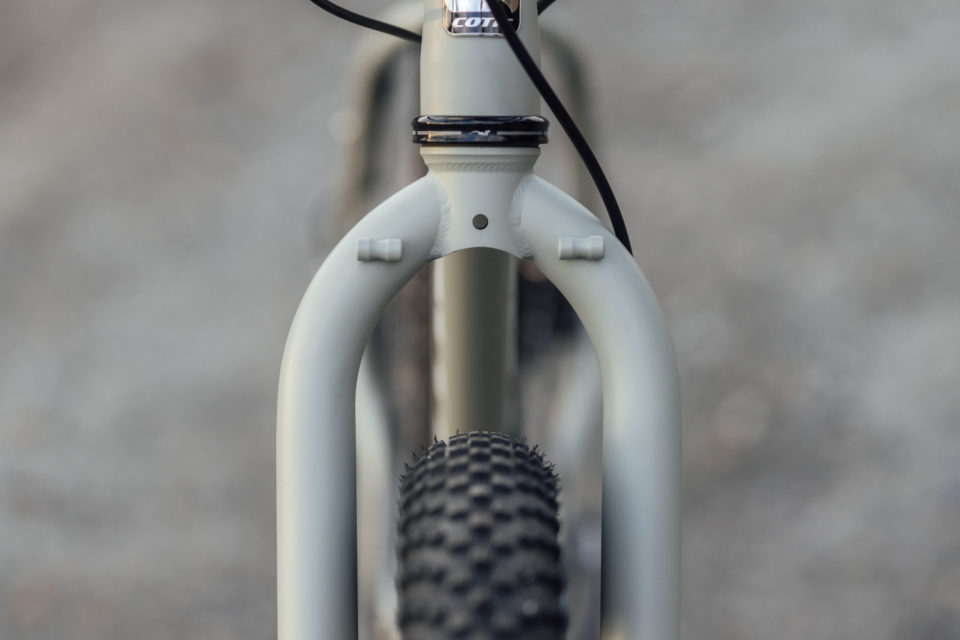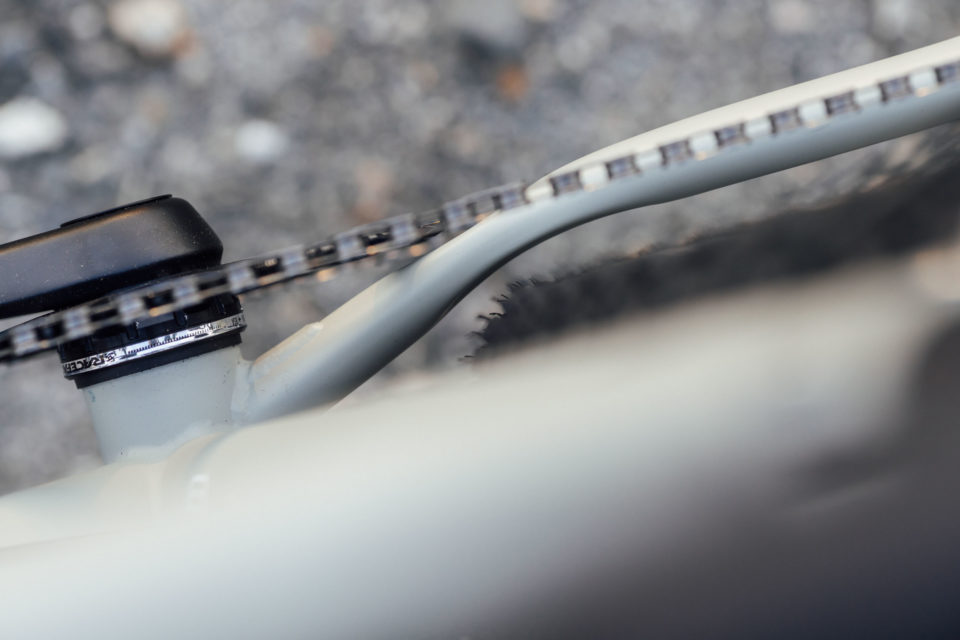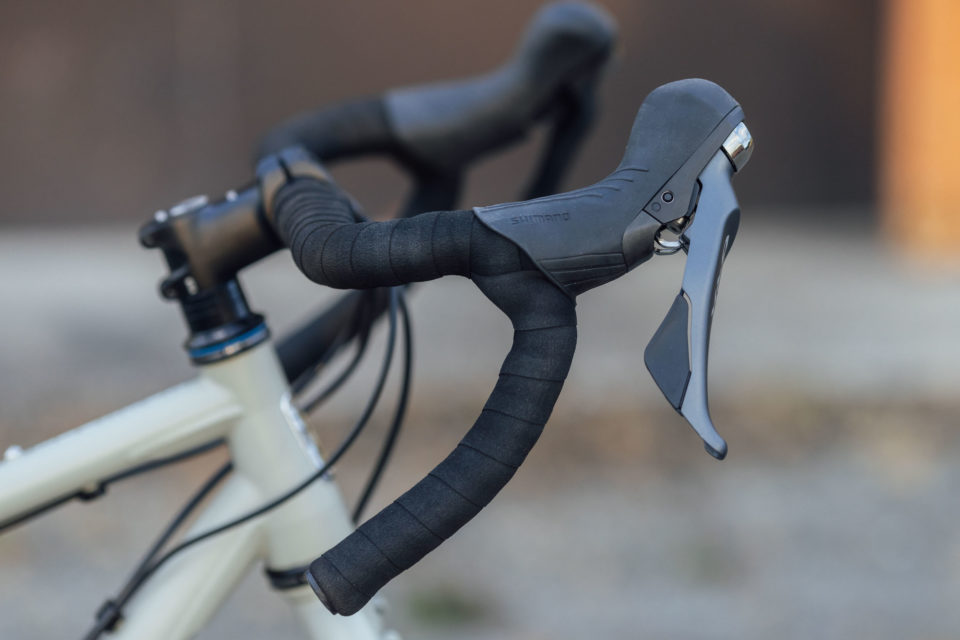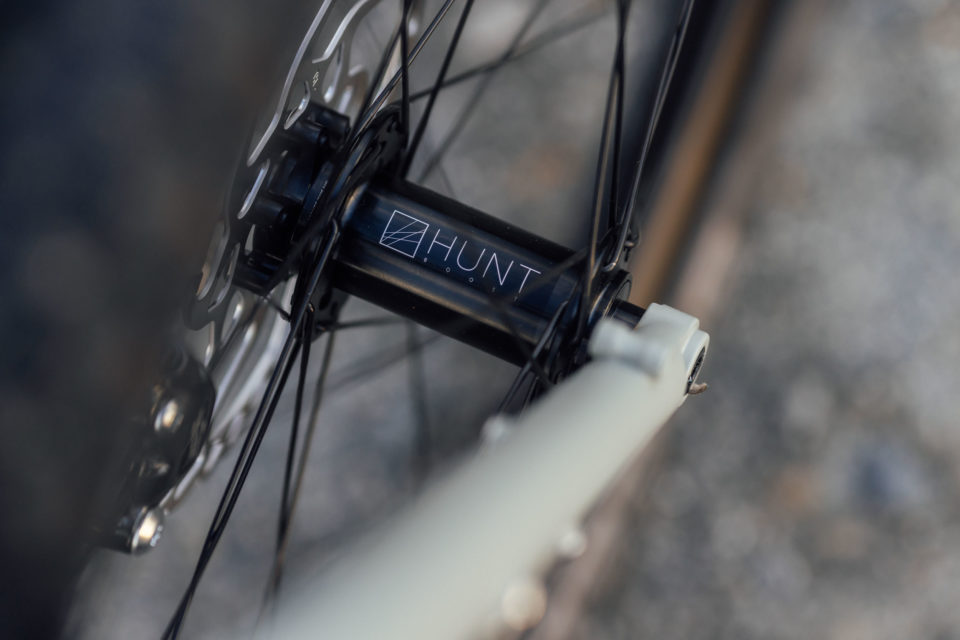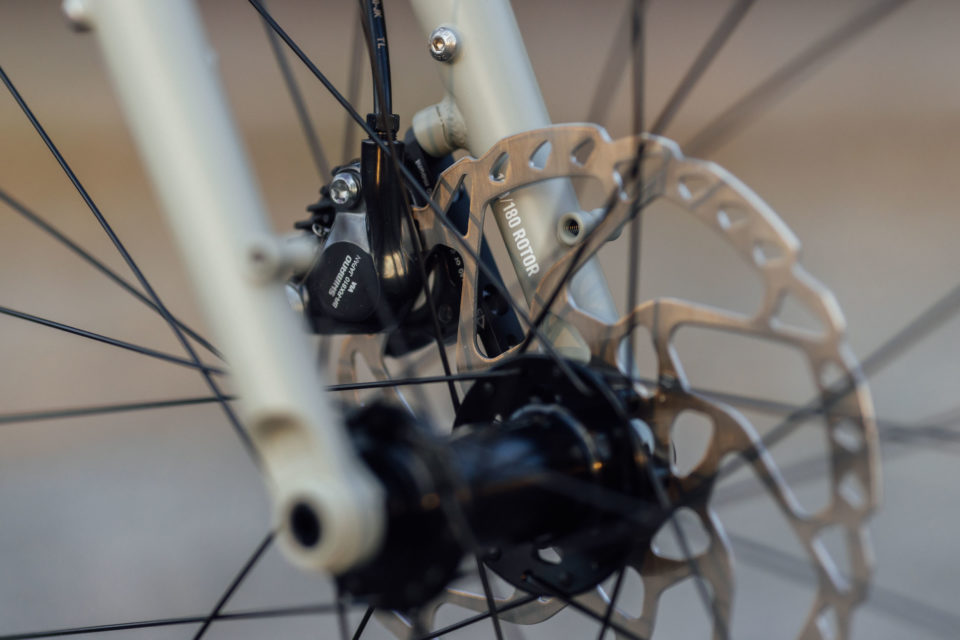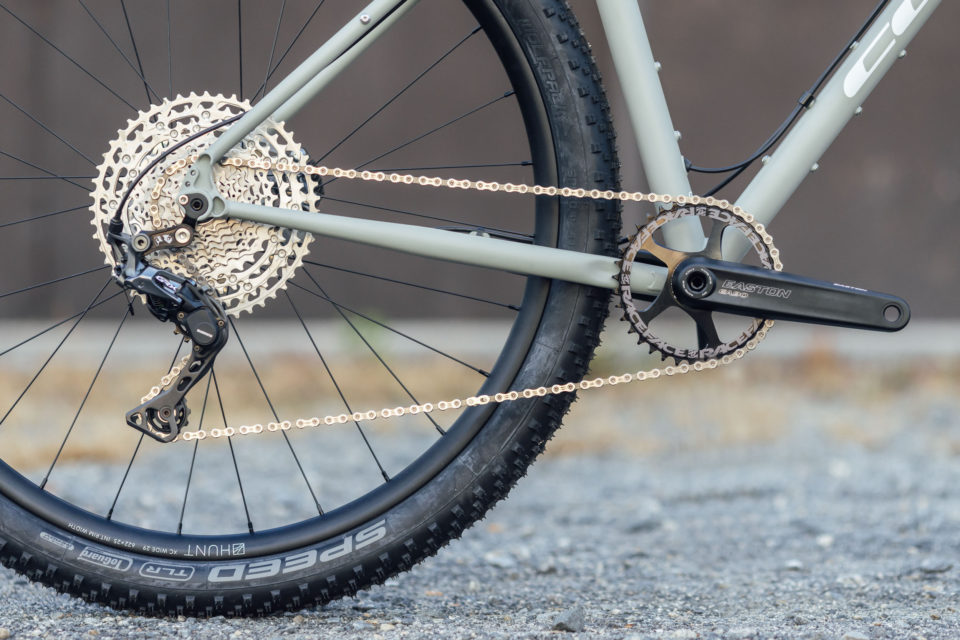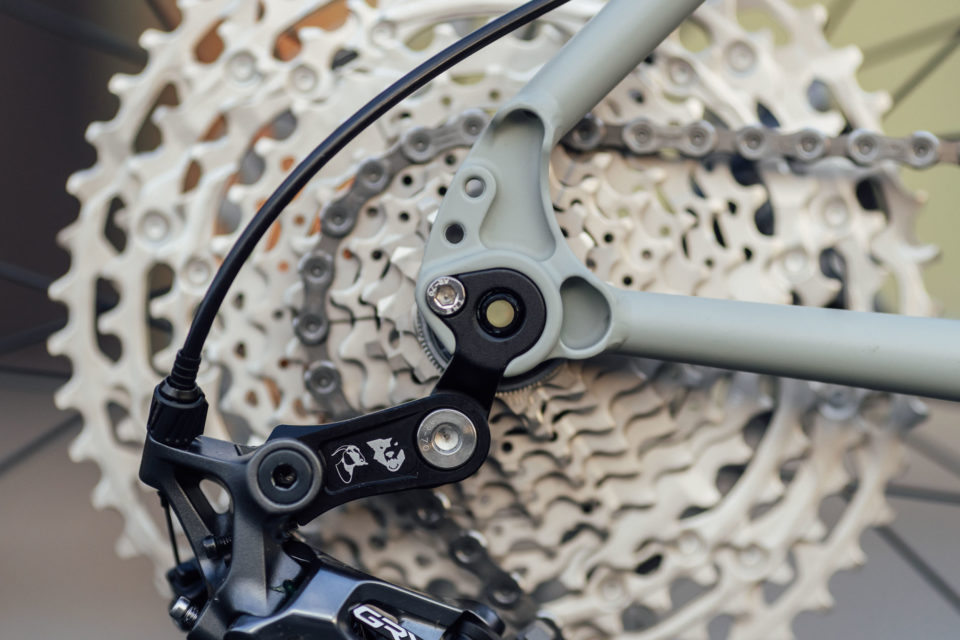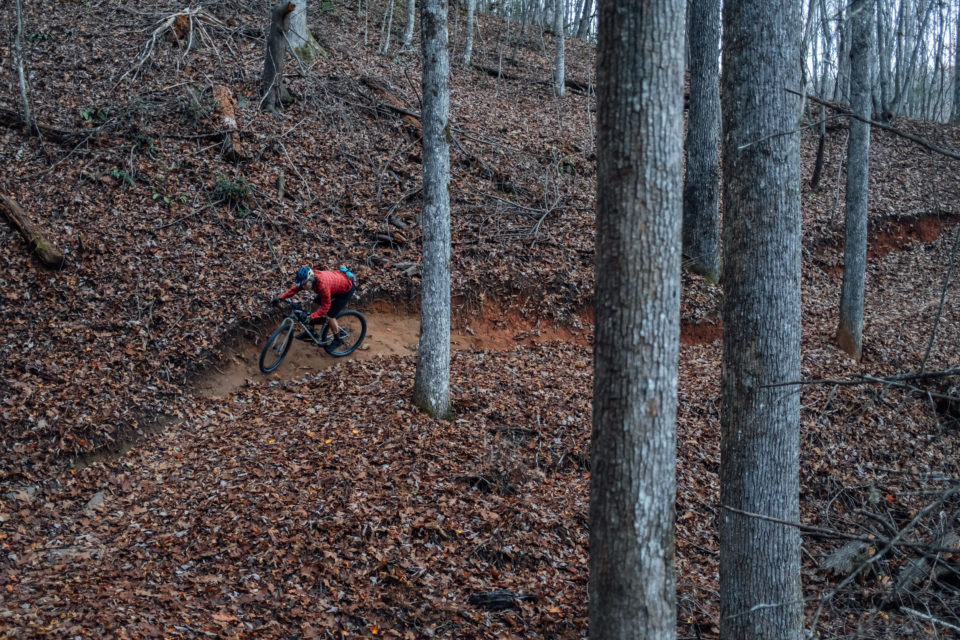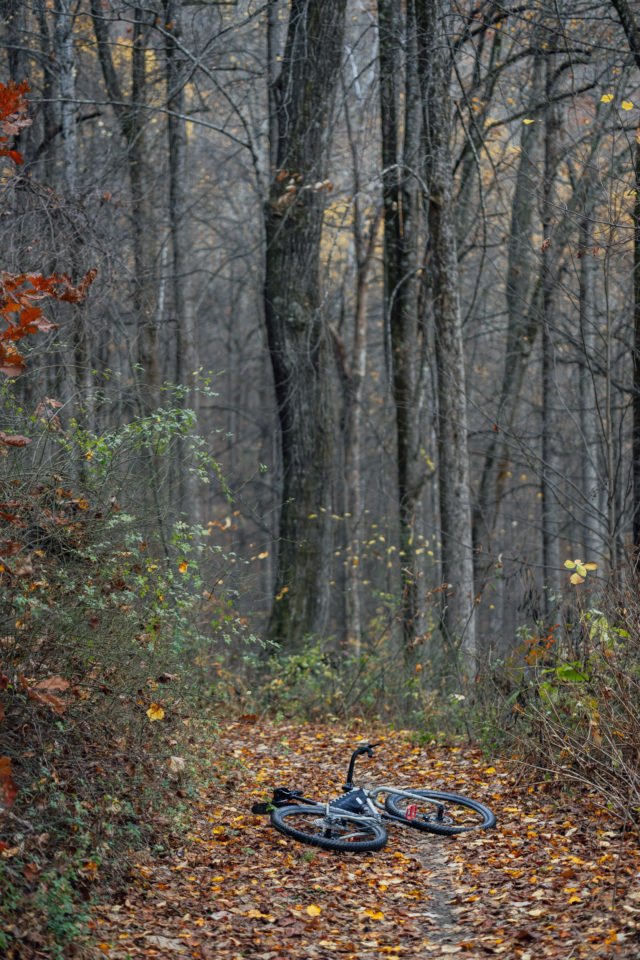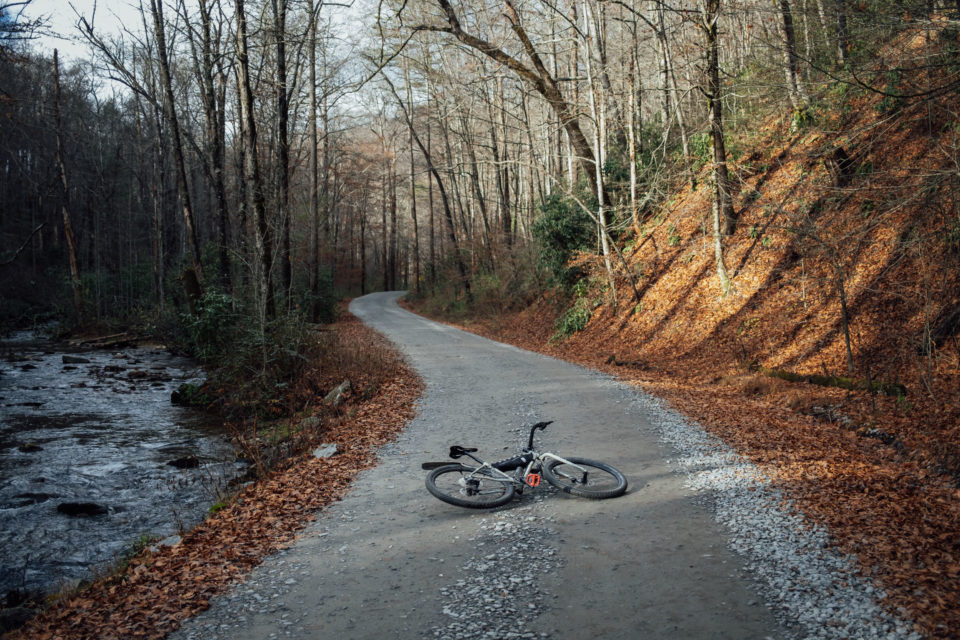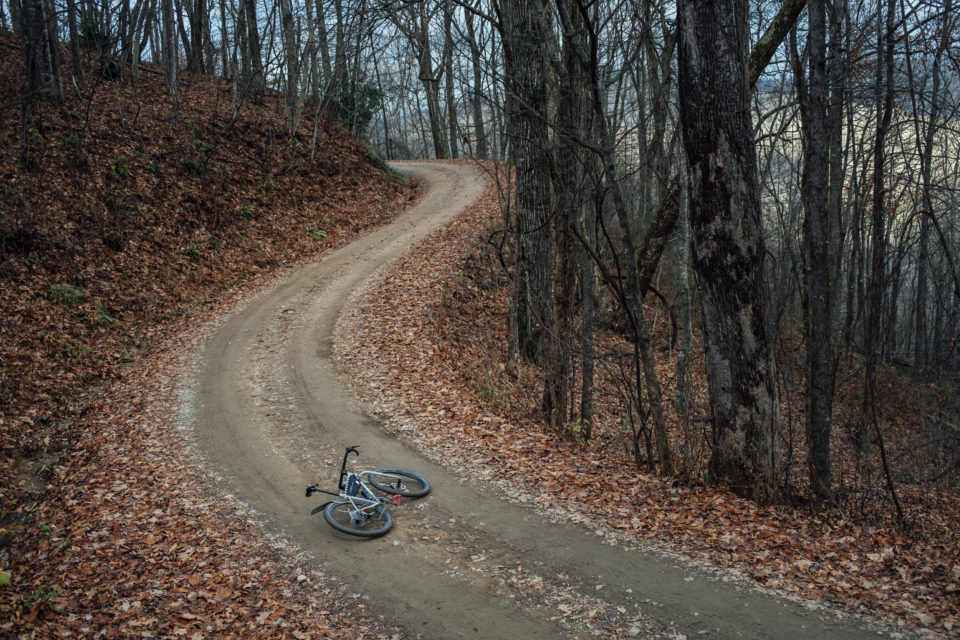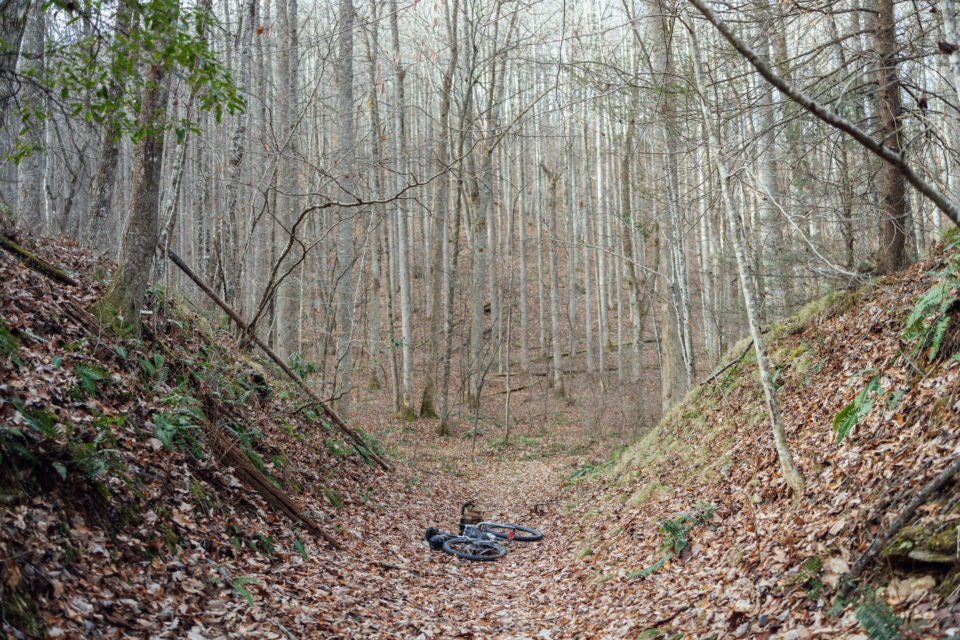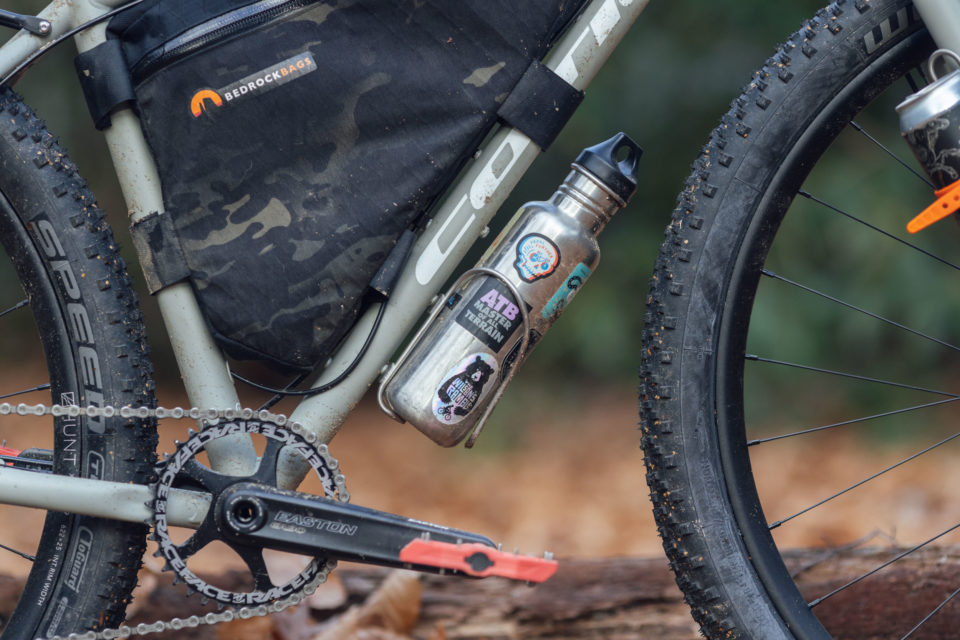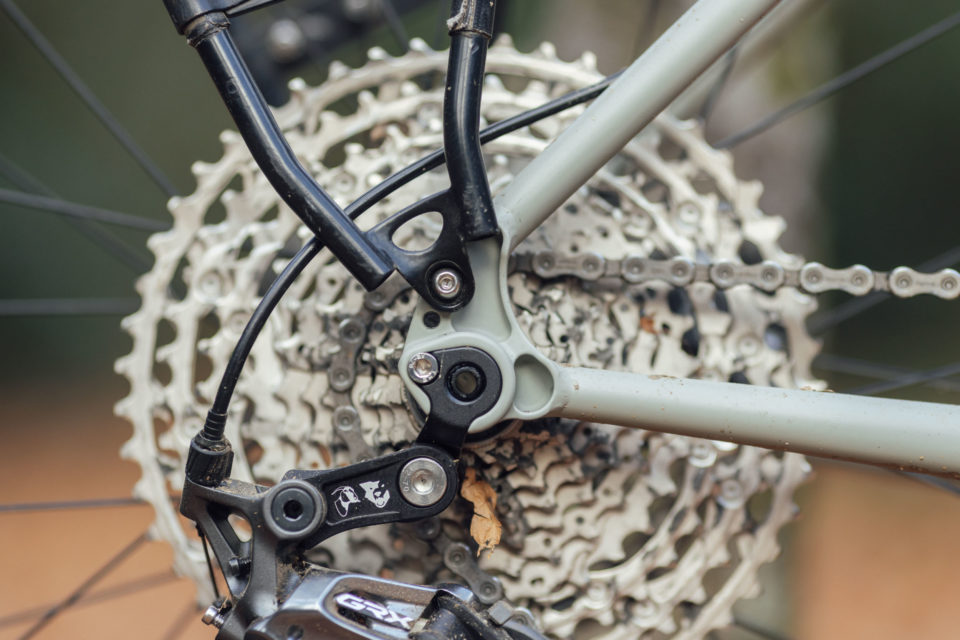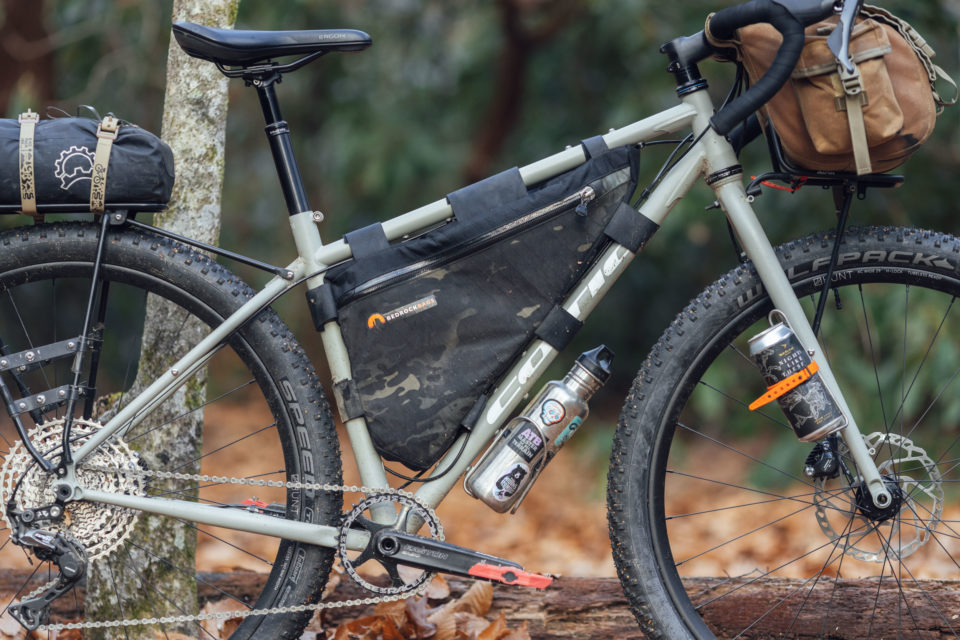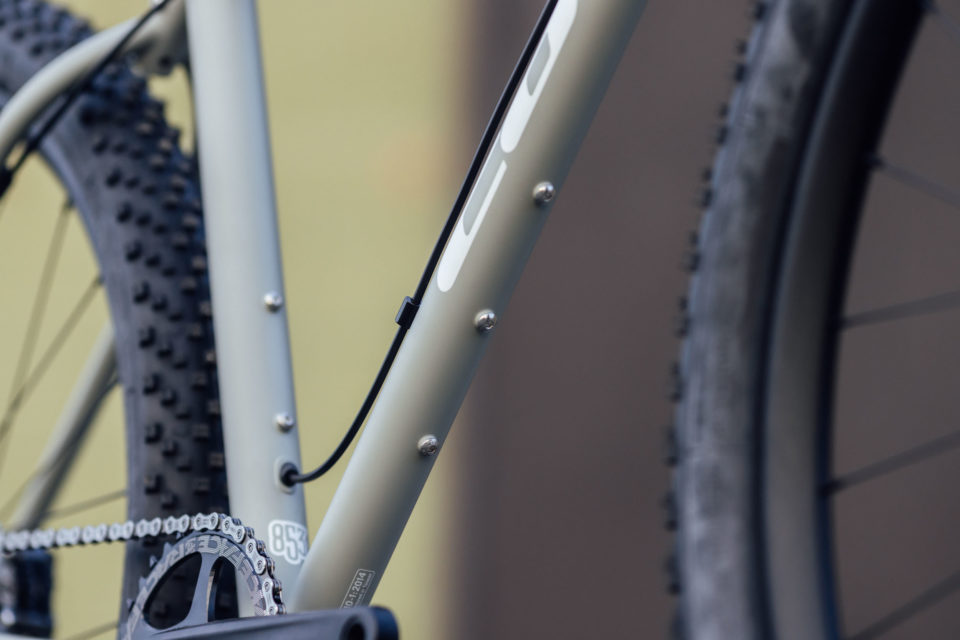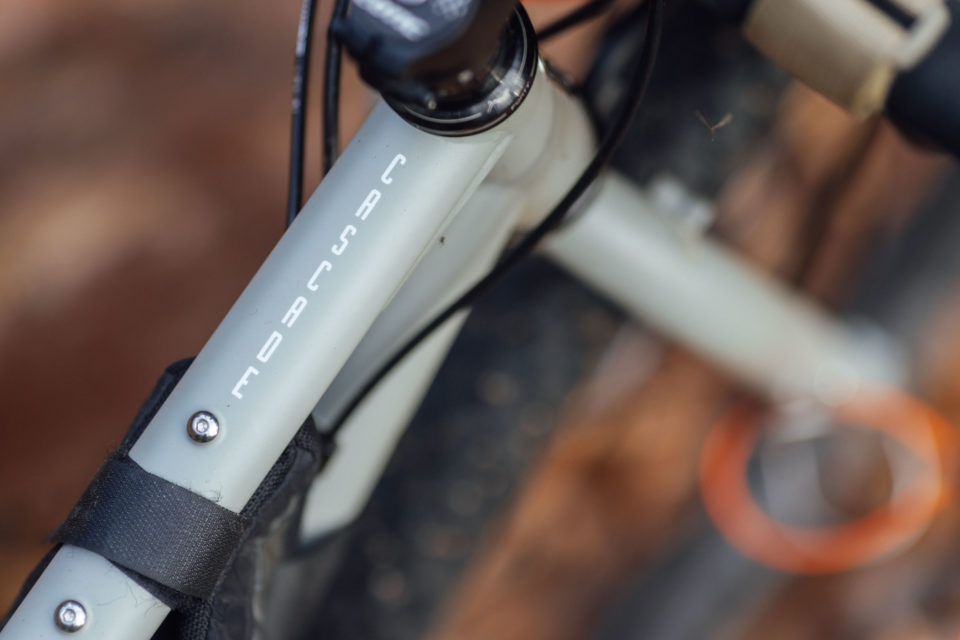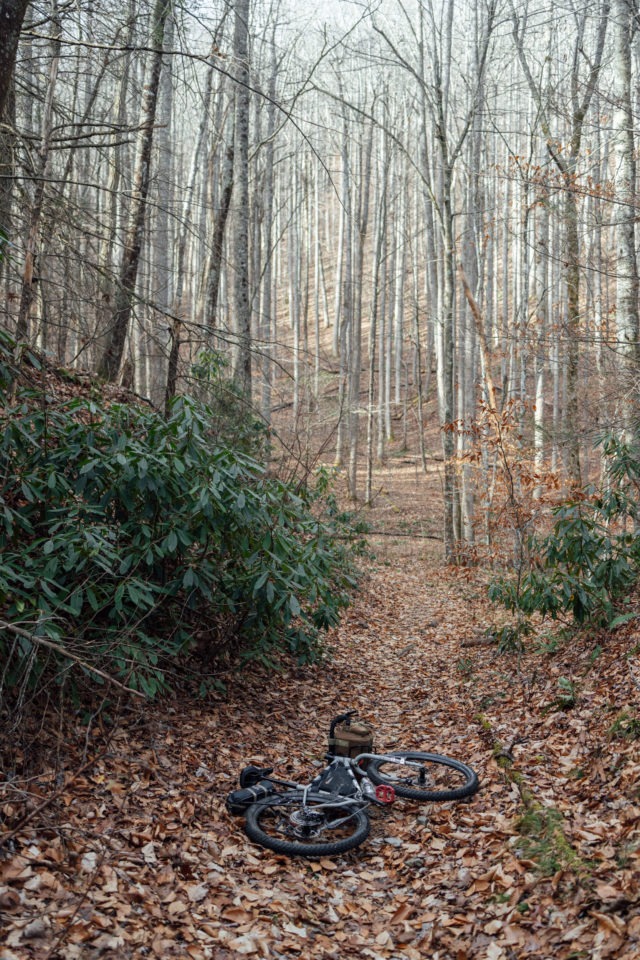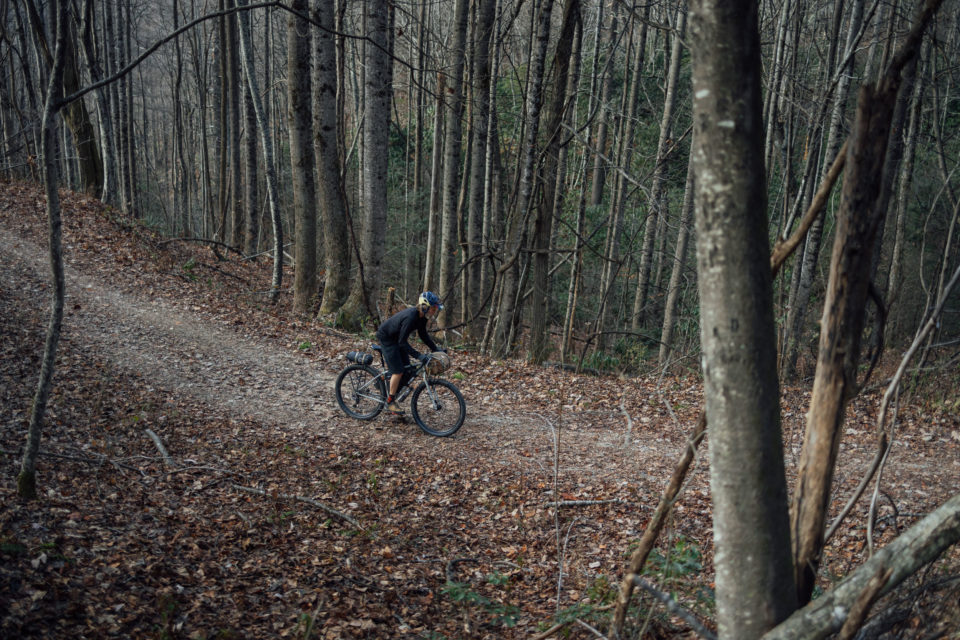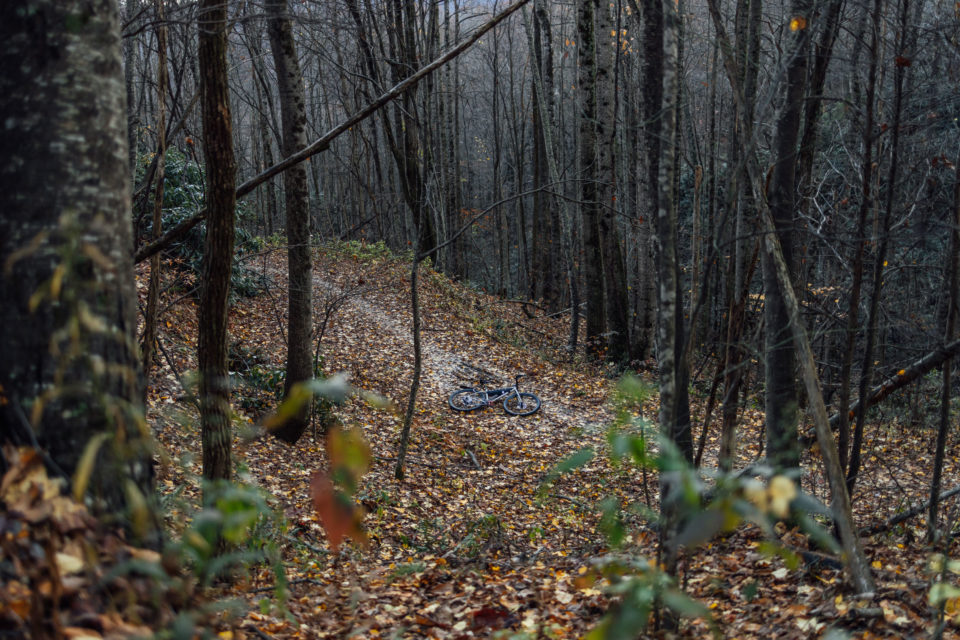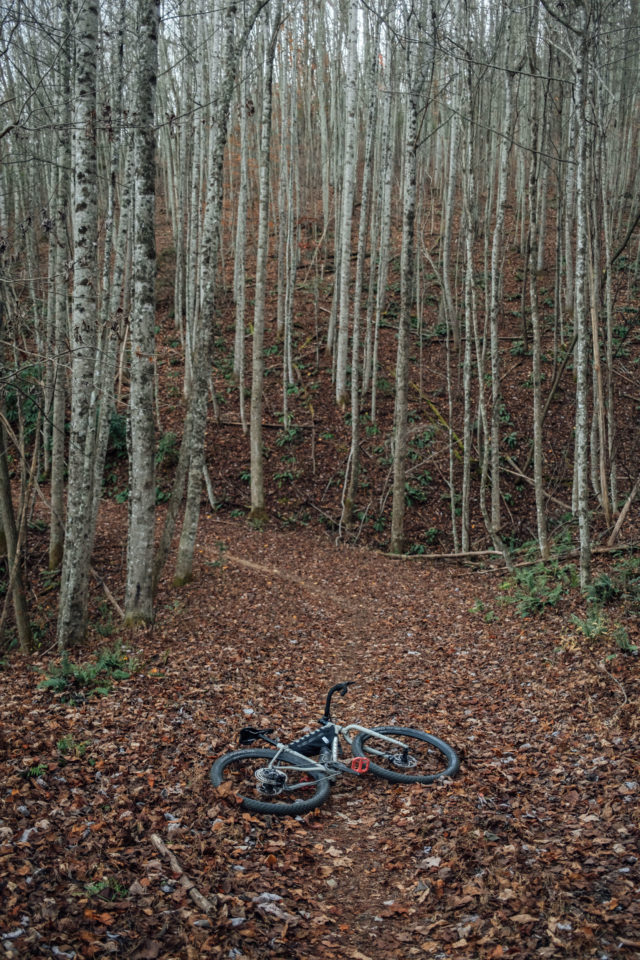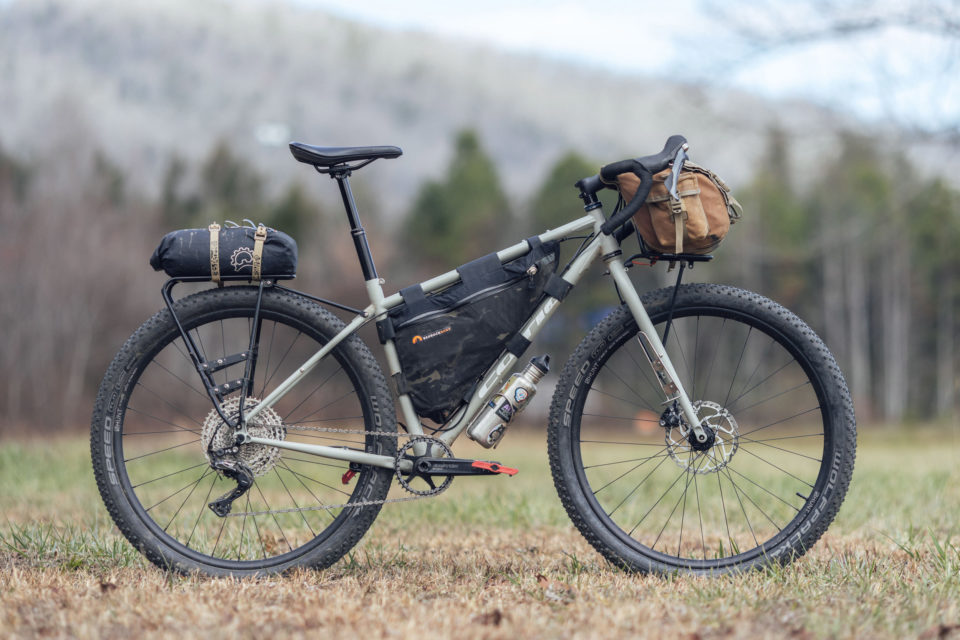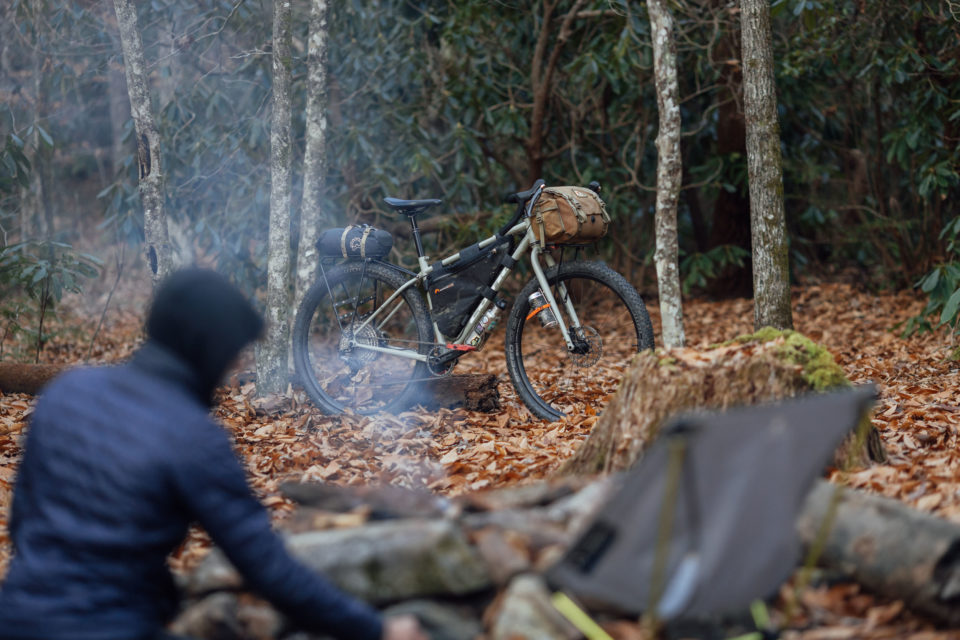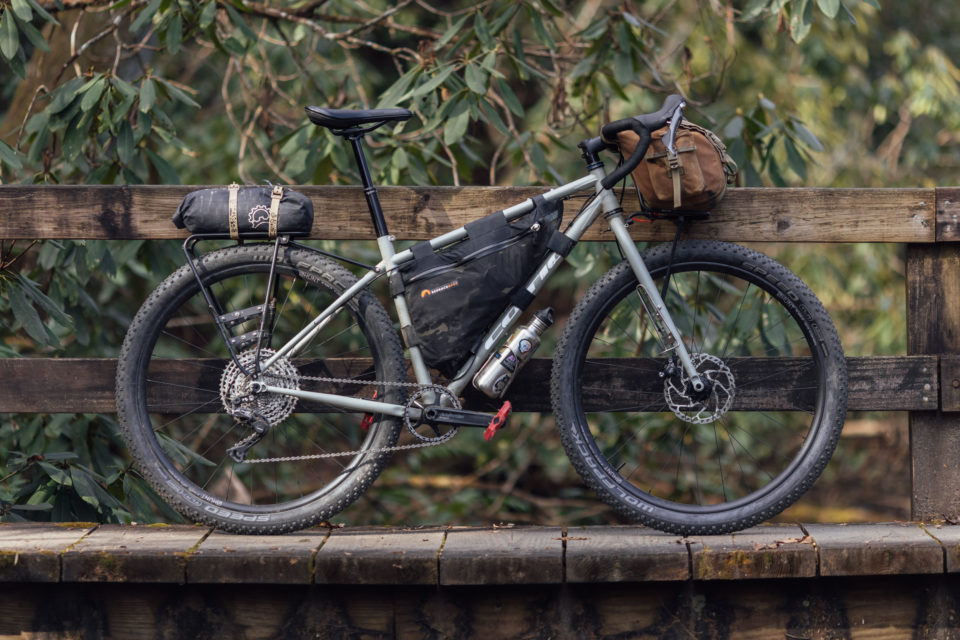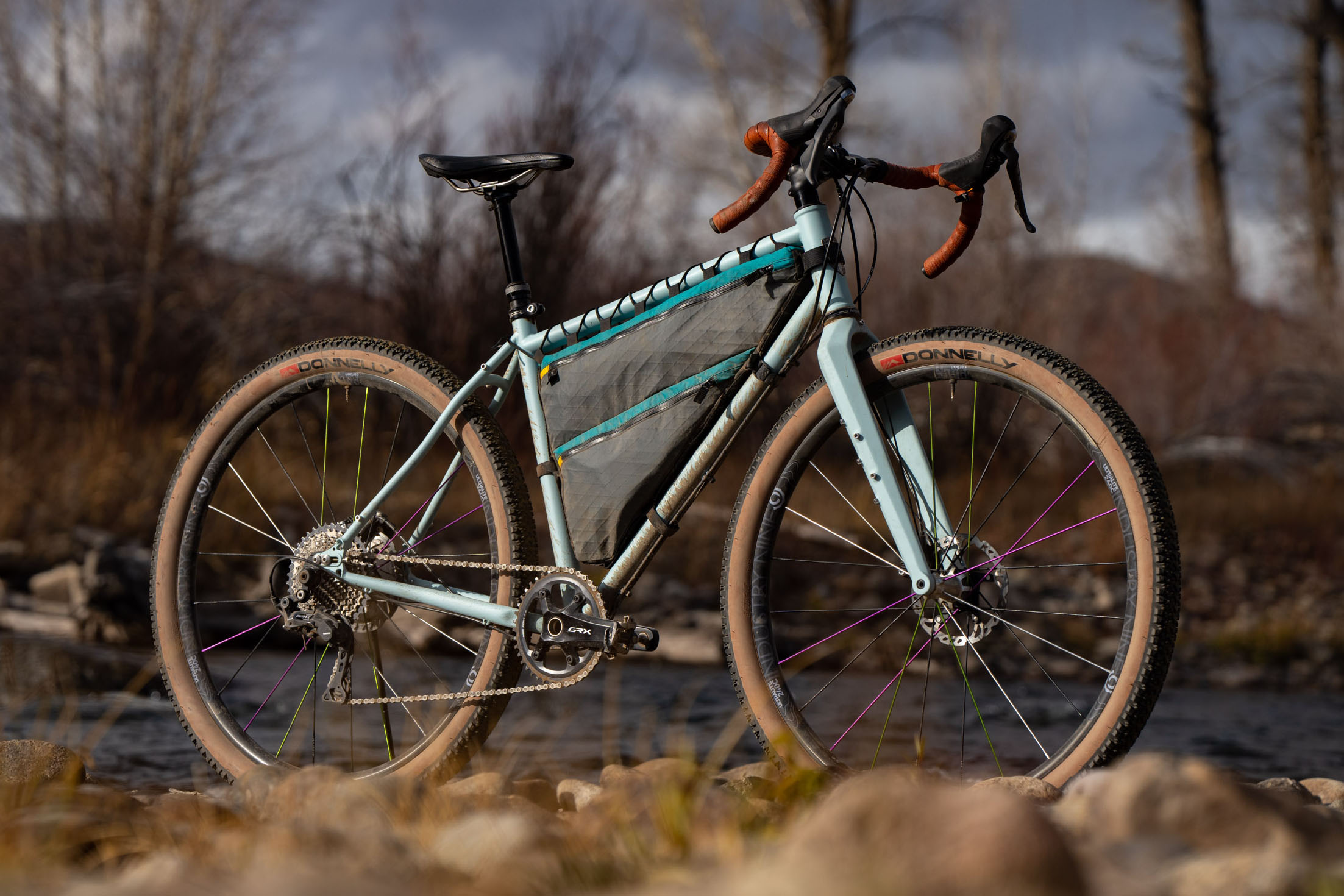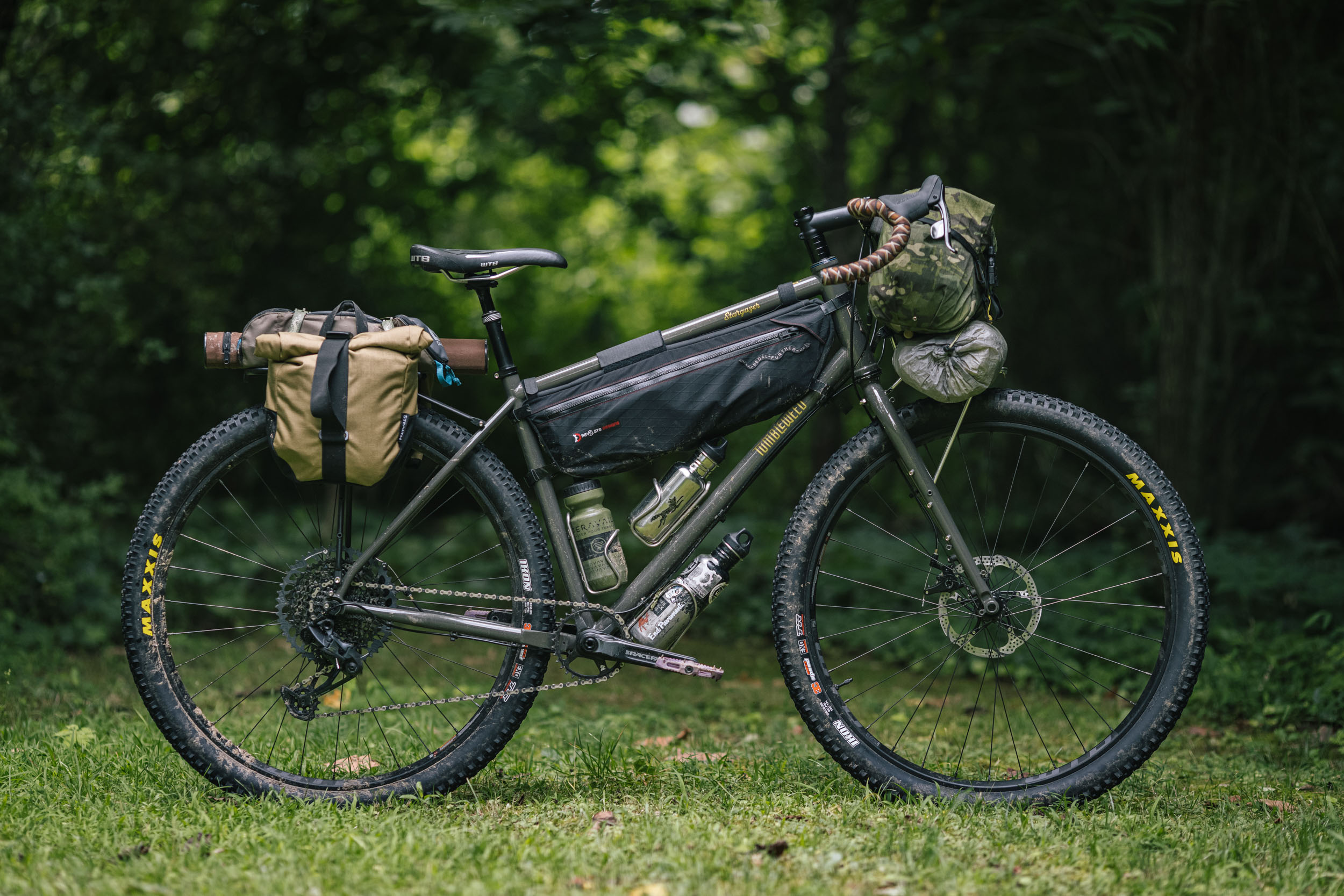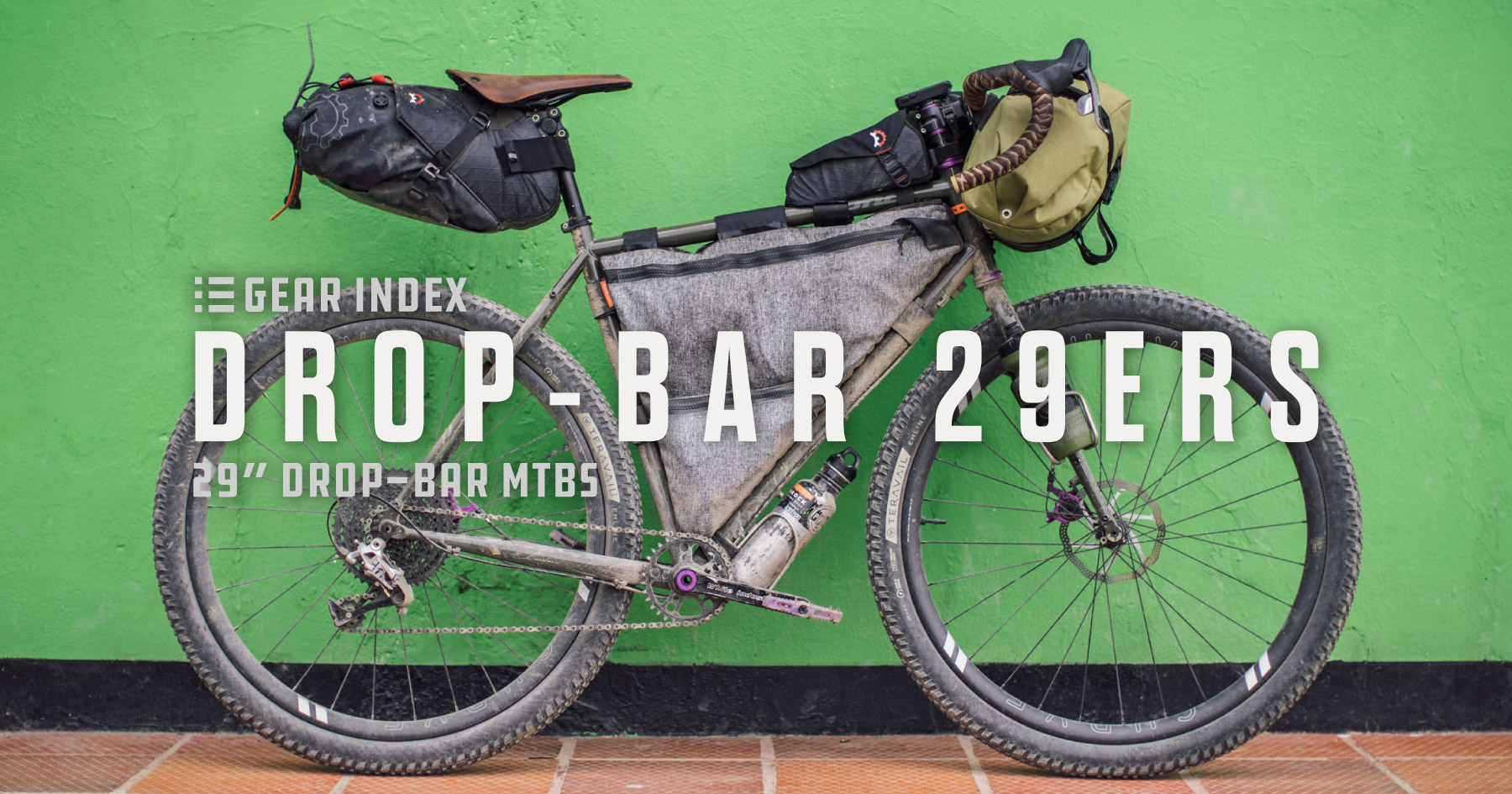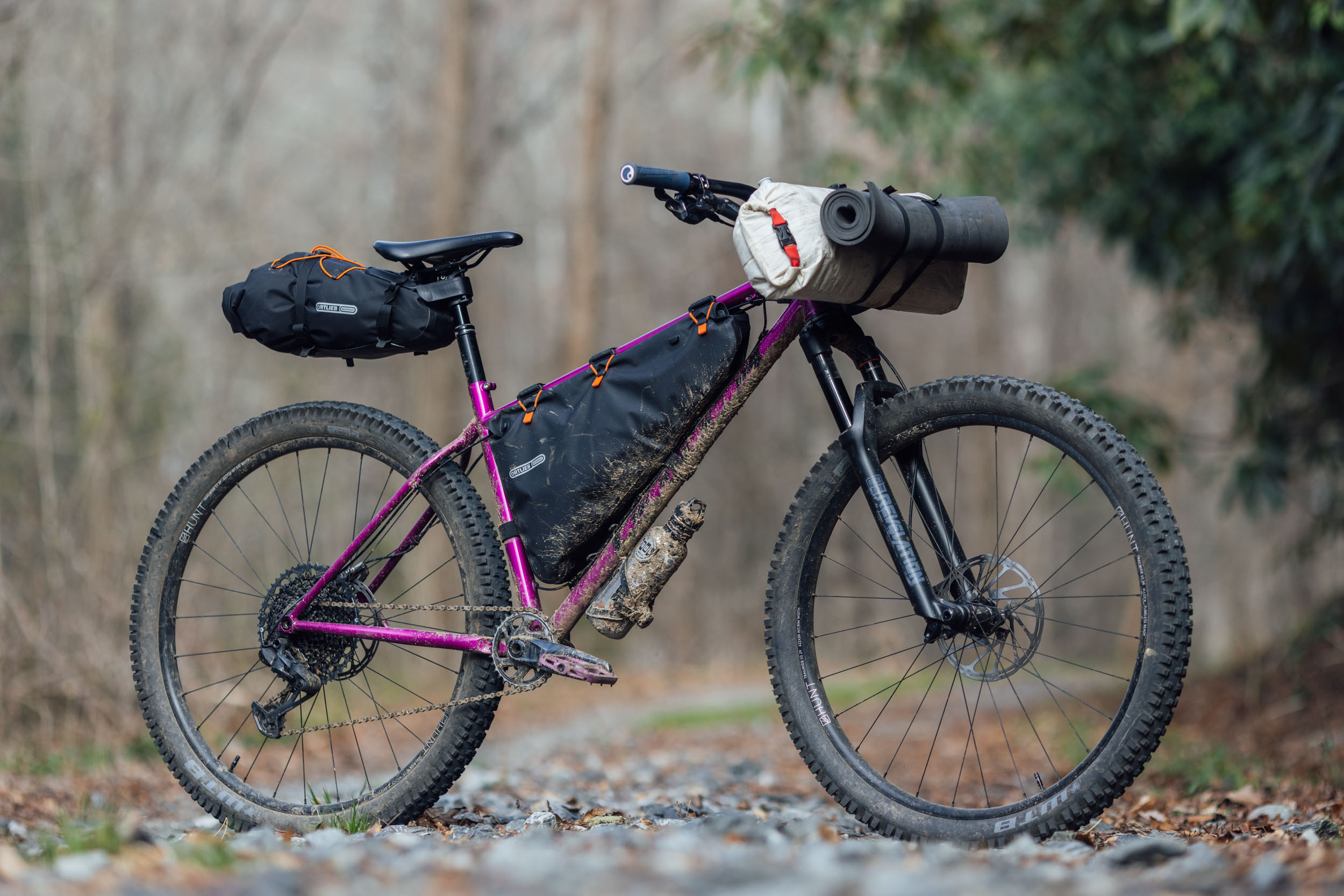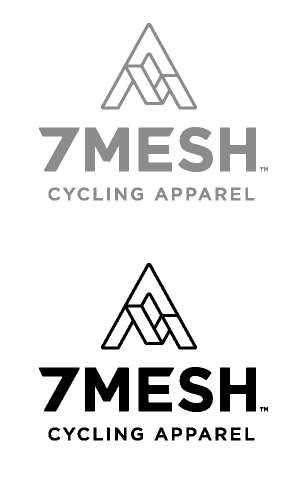Cotic Cascade Review
Share This
In our latest drop-bar 29er test, Logan throws a leg over the new Cotic Cascade and looks well beyond the obvious after pedaling it hundreds of miles on singletrack trails, dirt roads, and gravel on bikepacking trips around Pisgah National Forest. Find out what makes the Cascade different from other steel bikes in its class in this detailed review…
There’s a paradox that often emerges in the comments section whenever a new bike is released. A few folks cheer on the proliferation of whatever type of bike it is, while others seem to be against it. Some readers express their wish for more options and marginally different variations—a version with ever-so-slightly slacker/steeper angles, a longer/shorter measurement here and there, or a different type of dropout/hub spacing/fork length. Others believe that the buck should have stopped in its tracks at that particular bike genre’s bellwether, with comments along the lines of: “Meh, it’s just another [insert brand and original groundbreaking model] with a different [color scheme/drivetrain/tire size].” Or, “We don’t need another [insert frame material and sub genre] bike!”
One such bike type that seems to incite such rhetoric is the drop-bar 29er. As evidenced in our recent update to the Gear Index on the subject, this category is expanding faster than many others in the bike industry—or at least faster than others in the “alt-bike” industry, if there is such a thing. We noticed at least dozen new permutations of this niche breed last year, such as the relatively new Cotic Cascade reviewed here today.
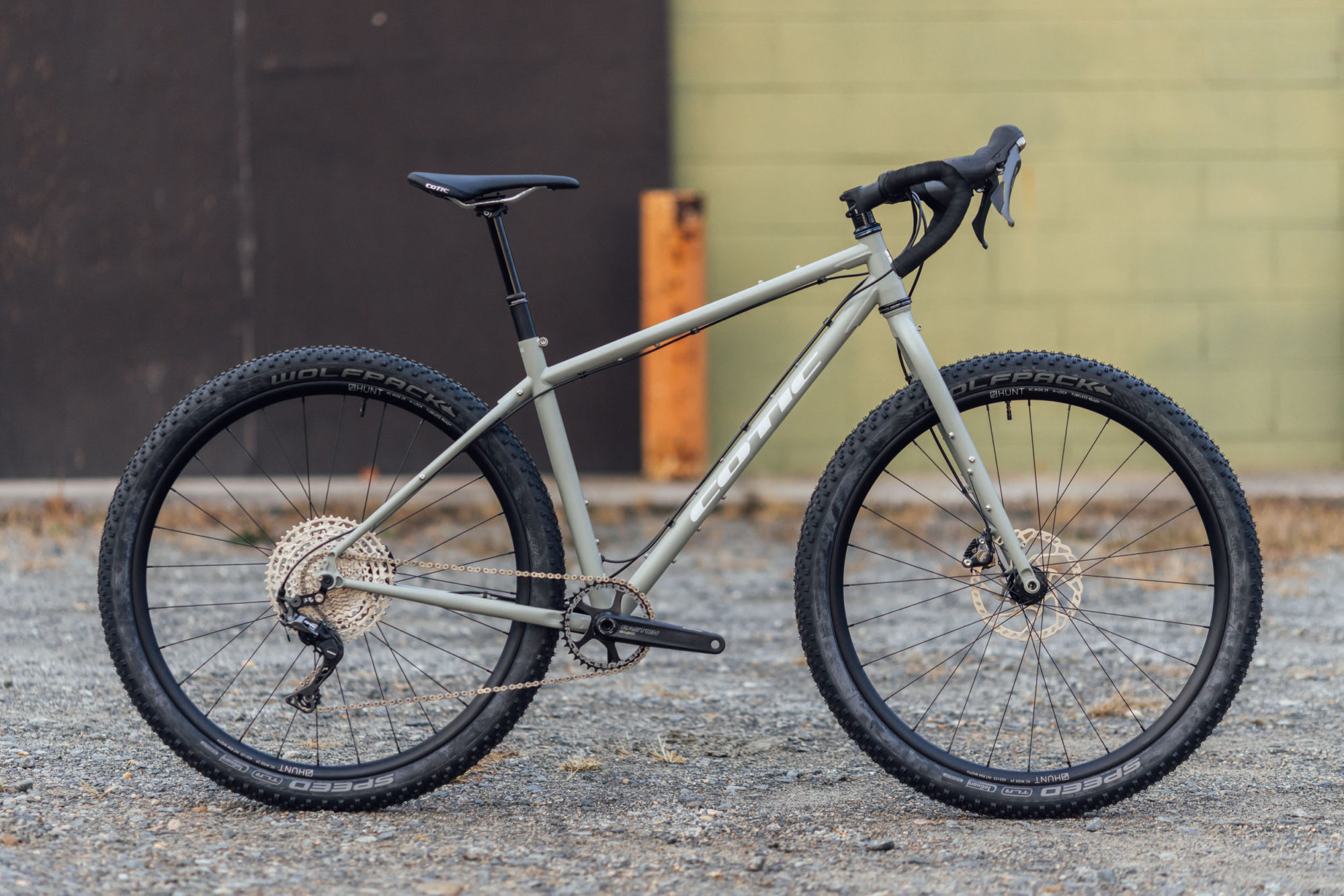
Obviously, there are the progenitors of the drop-bar 29er category, such as the Salsa Fargo, but in our opinion, there are many particular—dare I say persnickety—riders who could benefit from subtle variations on the theme and nuances to fit varying preferences. Infringement and blatant ripoffs are one thing, but brands putting their best foot forward to add something legitimate to the menu of options are welcome to the table, in my opinion. My rationale is that many of these bikes are substantially different despite having the same base framework (and what many keyboard opponents have to say). I’m not belittling these folks’ sentiment, but having reviewed well over a dozen bikes in this genre, I’ve been impressed with how each of them have their own unique characteristics and eccentricities and could arguably be pigeonholed into their own distinct microcosmic subgenera as a result.
The Cotic Cascade is one such relatively new bike. When it was released almost exactly a year ago, it incited similar discussion, if I’m not mistaken. However, after trying one, it’s clear that it’s its own animal. In short, it’s the UK-based brand’s dedicated 29er drop-bar mountain bike. Cotic conceived it to slot neatly into their growing range between the SolarisMAX hardtail mountain bike and the Escapade all-road road/gravel bike. It’s designed to be a versatile character in their lineup that can be lightened with a carbon fork, beefed up with Cotic’s rigid steel fork, or dressed up with a 100mm travel suspension fork and dropper post. I tested the rigid Cascade with a dropper and 2.4” tires for this review.
Cotic Cascade Frameset
Cotic only makes steel bikes, which is one thing I love about the brand. They’re also known for pushing the envelope with progressive geometry. As evidenced in our 2022 Gear or the Year awards, I was blown away with the SolarisMax, which made me wonder if some of their other bikes shared the same DNA—namely, a well-conceived tubeset design.
Just like the SolarisMax, the Cascade is built with a Reynolds 853 steel “Ovalform” top tube, an 853 34.9mm seat tube, 4130 Chromoly steel wishbone seat stays, and bridgeless S-bend chainstays. It’s based around Boost hub spacing (148 x 12mm rear/110 x 15mm front), with clearance for 29 x 2.4″ tires in the rear end and 2.6″ up front. It can also be set up with 27.5 x 2.8″ or 3.0″ tires. One key difference between the Cascade and SolarisMax frames is the dropout. The Cascade employs the version used in the Esplanade, which has a completely different derailleur hanger. Note that the new Solaris will use this dropout too, which reiterates the brand’s commitment to it. It’s also a welcome addition as it offers rack mounts. The frame also has bosses for bolt-on frame bags, racks, fenders, top tube bags, and more, which I’ll dig into later.
As mentioned, Cotic offers the Cascade with your choice of three forks: their steel Alpaca fork, a carbon Salsa Firestarter, or a Rockshox SID SL Ultimate 100mm travel fork for getting rowdy. The frameset comes in three colors (Lichen, Nimbus, and Smoke) and four sizes (small, medium, large, and extra large).
Build Kit
There are a number of ways to purchase a Cascade, from just the bare frame to a complete bike and everything in between. The frame and steel fork are priced at £849 (~$1,050 USD). A rolling chassis (frame, fork, wheels) starts at £1,265 (~$1,560 USD), and complete builds are offered from £2,099 (~$2,600 USD). The build kits are completely customizable, so if you want a specific set of tires or a different saddle, Cotic offers quite a few options.
With that said, the build kit that came on this review bike still has bearing on this review. It’s largely the Gold build with a couple of tweaks. Find the kit below with what I liked and didn’t like further down.
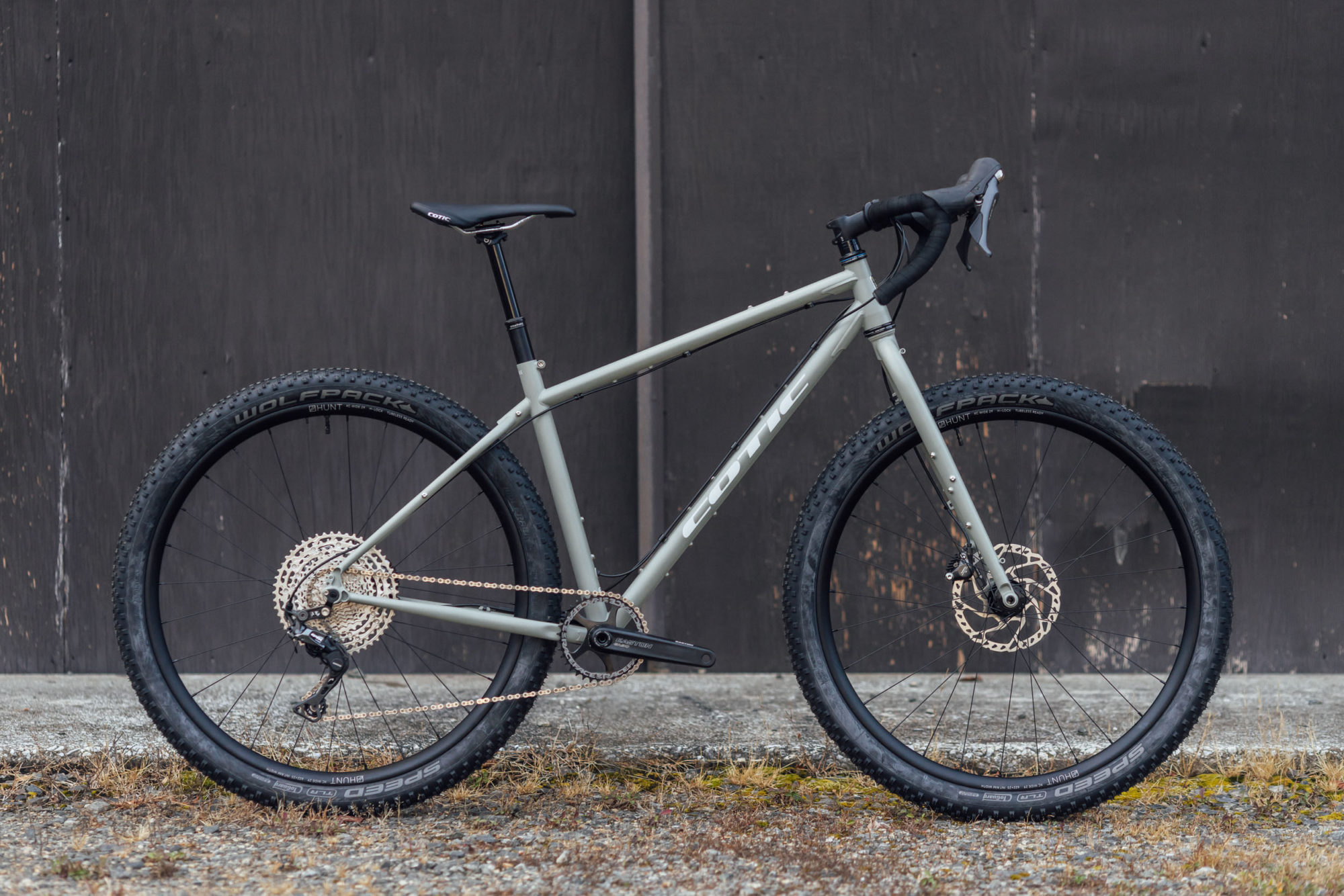
- Frame Cotic Cascade, size Large
- Fork Cotic Alpaca fork
- Wheels HUNT Trail Wide 29 V2 HG ready
- Tires Wolfpack Speed 29 x 2.4″
- Crankset Easton EA90, 172.5
- Derailleur Shimano GRX800 1×11
- Shifter/levers Shimano GRX800 1×11
- Cassette Shimano Deore 11-Speed 11-51t
- Bottom Bracket RaceFace 30mm BB
- Handlebar Cotic Valley Bars, 46cm Alu Flared
- Stem Cotic 60mm Stem, 31.8 Clamp
- Grips Cotic Black Bartape
- Headset Cane Creek 40 Series EC34/EC44
- Brakes Shimano GRX800 Hydraulic Disc Brakes, 160/180mm rotors
- Saddle Cotic saddle
- Seatpost BikeYoke Divine 125mm drop
Generally speaking, I liked most of the components that came on this build of the Cascade. The “mullet” GRX drivetrain with a Deore 11-51 tooth 11-speed cassette and a Wolf Tooth Goatlink provides an excellent gear range for bikepacking and trail riding, and it’s nice to see a customized setup like this come in a stock build. However, there were a couple of components that felt mismatched and left the bike feeling undergunned. In my opinion, Cotic should have wider and more flared bars on this bike, for instance. Cotic’s 46mm flared bars definitely tended toward the roadie side of the spectrum and lacked the control that a lot of wider and more flared bars offer. The 52cm PNW Coast bars would have better suited this bike’s rowdy pedigree. The other main issue I had was with the Wolfpack tires. Cotic seems to like these tires, as I’ve noticed them on other models, but they didn’t do it for me. They’re fast and handle gravel and two-track pretty well, but as trails got slicker, rootier, and more technical, I found the harder rubber compound and their very round profile to dumb down the Cascade’s intrinsic confidence. I’ll touch more on that later in the review.
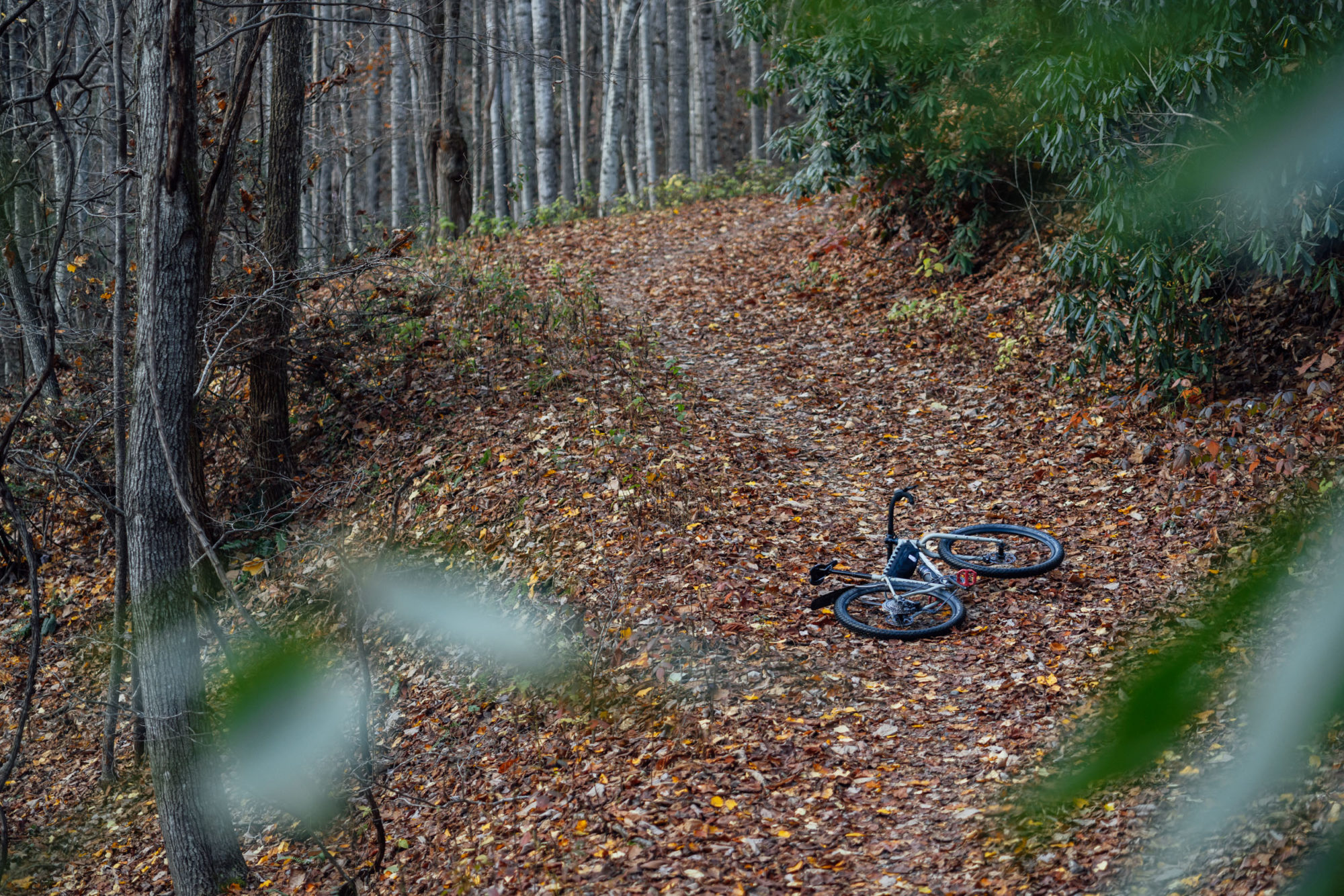
Isn’t this just a…?
The Cascade diverges from other bikes in its class by way of its overt mountain bike demeanor. It’s not the first 1x-specific, Boost-spaced drop-bar 29er on the market. It’s also not the first that’s suspension-corrected for a 100mm travel fork. And it’s certainly not the only one to have clearance for bigger tires than are truly needed for a bike of its ilk… and it won’t be the last. However, it might be one of the longest. This can be attributed to what Cotic calls their Sureshot geometry, which is designed around a short 50-70mm stem with drop bars. This is of course based on Cotic’s Longshot mountain bike geometry that was first introduced in 2017 and prioritized added front-center length and shorter stems.
Cotic Cascade vs. Tumbleweed Stargazer
Aside from the fact that they’re both Boost-spaced steel drop-bar 29ers with a lot of mounts, a 69° head tube angle, and flat-mount brakes, there are loads of differences between these two bikes. As shown in the chart below, the Cascade has a steeper seat tube, shorter headtube to accommodate a suspension fork, and a shorter chainstay. The biggest difference between the two comes from the Sureshot geometry, which adds a whopping 43 millimeters of reach to the size large Cascade over the Stargazer. The only other drop-bar bikes that come close to this length are the Otso Fenrir, which has a 4mm shorter reach, and the Surly Grappler, which has a 12mm longer reach.
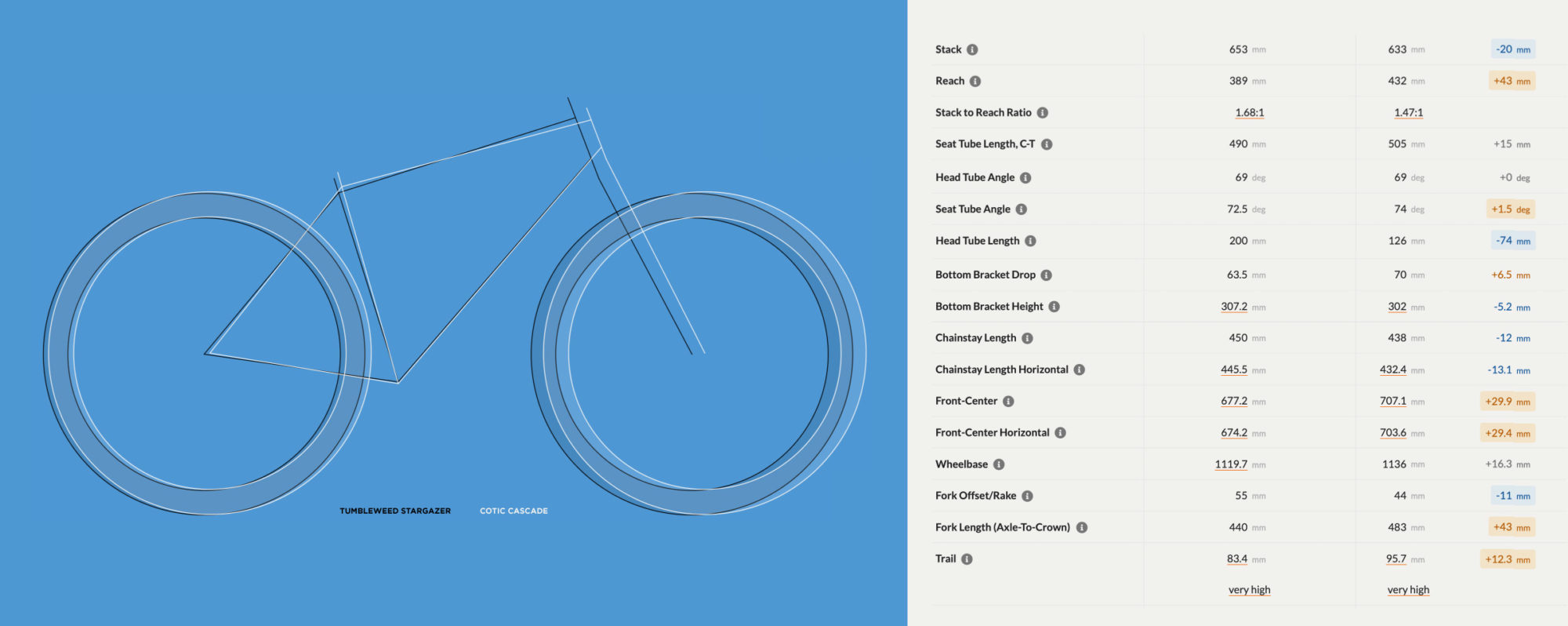
Both the Fenrir and Grappler are designed to accommodate either a drop bar or flat bar, which is an interesting point of analysis. I think you could say the same for the Cascade. For a lot of folks, it might make an interesting ATB-style flat-bar bike, particularly if you’re in between sizes and the fit makes sense. The only sticky wicket is that the Cascade has flat-mount brakes, which would require adapters to fit it with mountain bike brakes. That being said, the Cascade uses an interesting “+20 brake mount” up front, which makes it pre-adjusted for an oversized 180 front rotor. This is certainly a welcome addition. Additionally, you can configure it with the “Bronze” build that comes with a MicroShift Advent X drivetrain, which would make it easy to switch to MTB controls.
It’s also a higher trail drop-bar bike than the Tumbleweed, and most other drop-bar bikes, for that matter. The Cotic’s 95.7mm trail is rivaled only by the Pipedream A.L.I.C.E out of the bikes we’ve tested. Oddly, it has the exact same trail measurement, despite it having a lot of other dissimilar measurements, including a 12mm longer chainstay and a 29mm shorter reach than the Cotic.
On the Trail
The Cascade’s angles, long reach, and high trail add up to a bike that I found to be one of the more confident drop-bar descenders I’ve tried. That confidence is the cornerstone of what makes the Cascade special. Not only can it rail down gravel roads to no abandon, it’s also pretty sure-footed on singletrack trails. It offers a good mix of stability and handling that generally feels like a solid cross-country mountain bike in a lot of situations.
That capability is hindered only by the components it’s built with, in my opinion. As mentioned in the Build Kit section above, the handlebars and tires make it a little ill-equipped on technical singletrack. I decided to prove its worth on Butter Gap, a trail that’s arguably best suited for bigger full-suspension bikes. I was able to maintain a pretty good pace that wasn’t too far behind others with squishy bikes. However, somewhere in the middle of the descent, my confidence steered me wrong as I shot through a rooty section that slung the Wolfpack tire’s rock-hard tread directly into a hole and sent me over the handlebars. I think if the Cascade was equipped with more reliable tires and a 52cm bar, it would be unstoppable, to a reasonable extent. The bike inspired confidence and would have delivered had the components followed through.
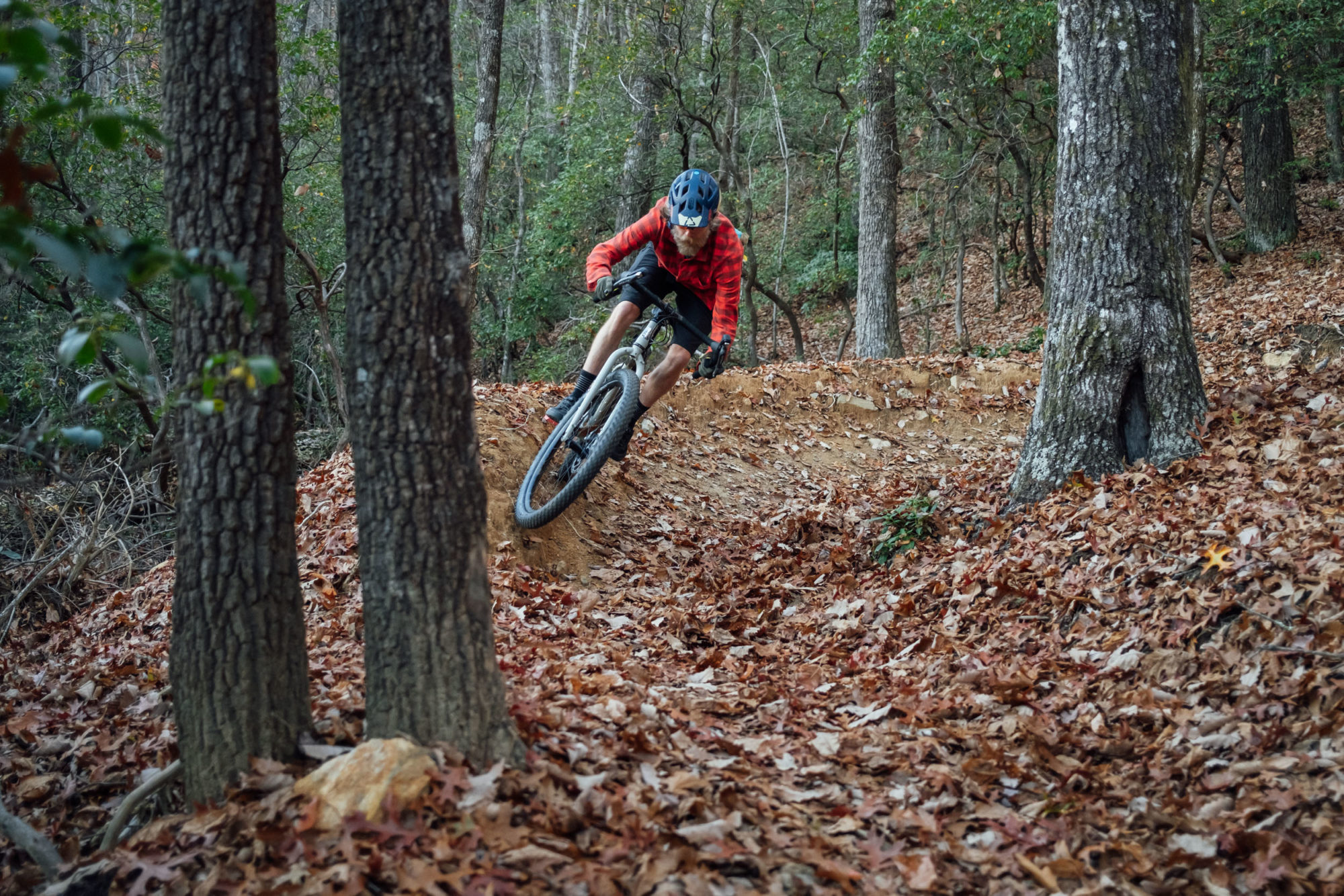
Despite its mountain bike demeanor, the Cascade manages to handle pretty well. It feels like a relatively playful XC bike on the whole, with steering that’s perhaps a bit slower than most bikes in the drop-bar category but quick compared to many mountain bikes. Still, it’s surprisingly fast to accelerate and wants to keep moving once it does, and it feels great on doubletrack and gravel roads. It’s also a pretty good climber, in part due to its overall stability, low-ish bottom bracket, and relatively steep seat tube.
The tubeset is one of the more comfortable I’ve tried in the drop-bar 29er category, too. It has a well-balanced frame feel similar to that of the Tumbleweed Stargazer, exhibiting a high-level of frame compliance that doesn’t tamper its quickness. It’s pretty clear that the same attention to detail from the SolarisMax was given to the Cascade. The fork isn’t quite as forgiving, as is common with most chromoly steel forks. But there are options. You can sub the Salsa Firestarter 110 carbon fork or the Rockshox SID if you’re looking for more plush comfort up front.
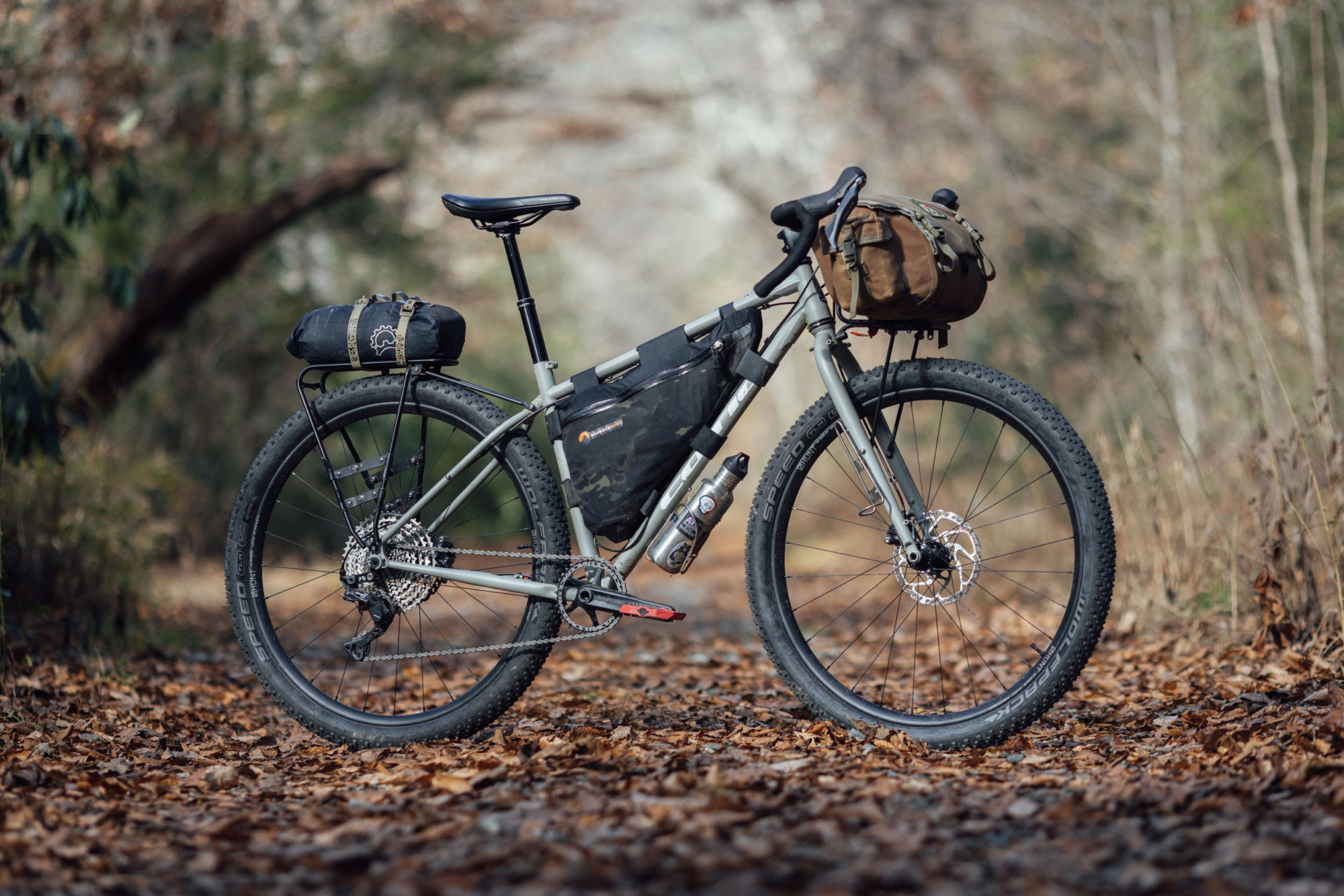
While Out Bikepacking
On paper, the Cotic Cascade has all the trimmings of a bikepacking bike—rack and fender mounts, 15 bosses in the triangle, a three-pack on the underside of the downtube, and a pair of mounts for a bolt-on top tube bag. There are a couple of oddities in that mix, however. The three pack on the underside of the downtube is positioned too high, in my opinion. I’d like to see them moved downward to better position a bottle. As you can see in these photos, the bottle sits high even with the cage mounted to the lower pair of mounts. Additionally, the rack mounts on the dropout are a little fiddly. I couldn’t attach my Tumbleweed T-rack because of the protruding steel curve. It could be done with a large spacer, but I opted to mount a Tubus rack with “3D feet” that bypassed the fin shape.
Speaking of bikepacking-related frame features, if I had my way, I’d opt for a longer seat tube and higher standover to make room for a bigger frame bag. Some folks looking to upsize and use flat bars might not agree. As shown in these photos, I fitted the large Cascade with an old camo Bedrock frame bag that was made for a size medium Jamis Dragonslayer back in 2015. Seat tubes were longer back then, so it kind of makes sense, but I still think a centimeter or two higher seat tube would be great with this bike. I don’t see the need for a 200mm dropper on a drop-bar bike, personally.
Other than those minor complaints, the Cascade makes a solid bikepacking bike. Its frame isn’t overly wiggly when loaded up with a medium-light load, and its grounded stability translates to long-ride comfort, especially in cruising mode. The relatively plush tubeset—particularly the rear end—also makes it a comfy all-day ride companion. Some folks might prefer a higher stack for a more upright position, but it fits me very well.
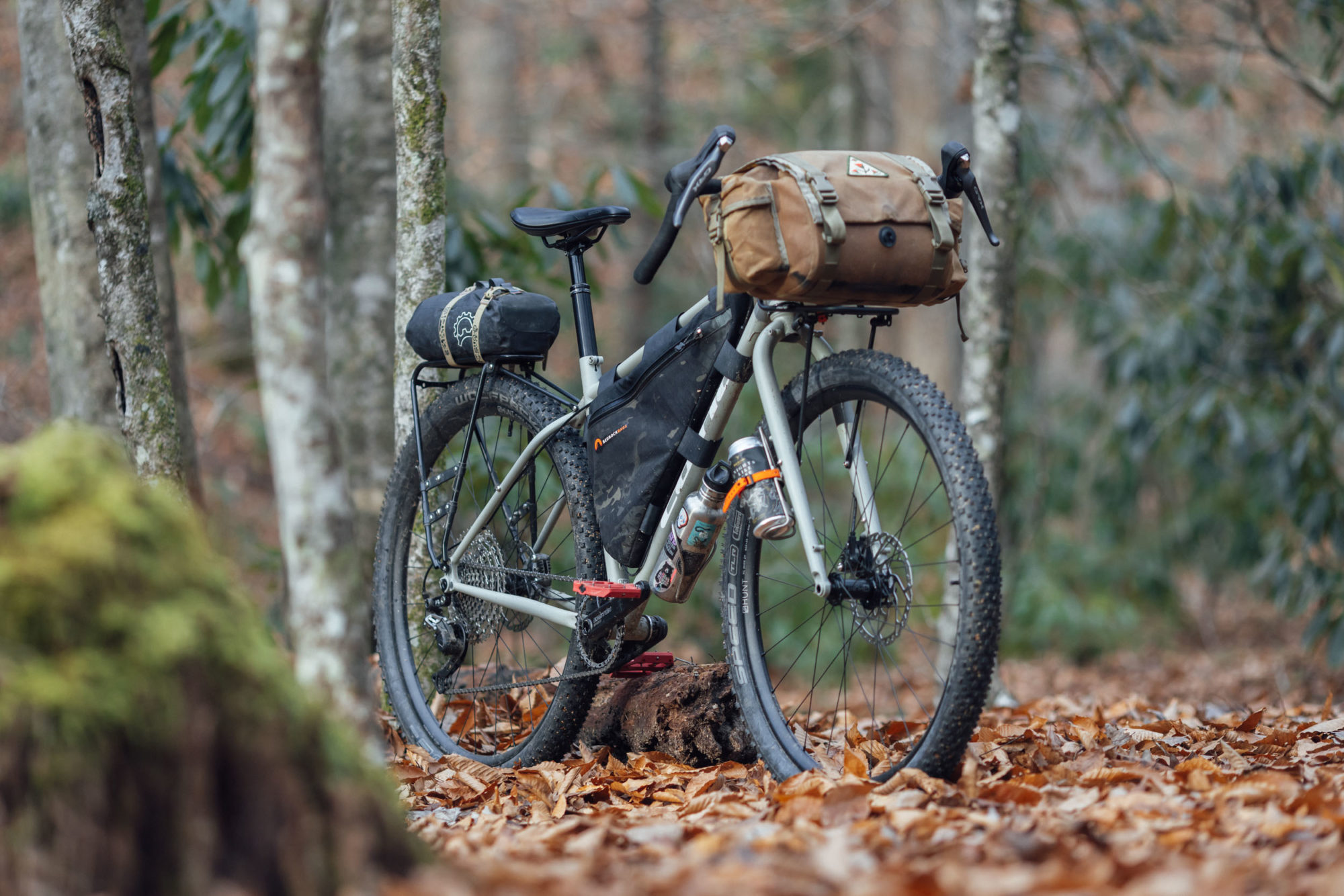
- Model/Size Tested: Large, Gold Build
- Actual Weight: 11.97 kg (26.39 pounds)
- Place of Manufacture: Taiwan
- Price: £2799
- Manufacturer’s Details: Cotic.co.uk
Pros
- Tubing design and selection makes for a comfy ride that’s still responsive and quick, part and parcel with Cotic’s DNA
- Super stable geometry makes for a very confident descender when compared to other bikes in the drop-bar 29er category
- Excellent tire clearance
- Good selection of mounts and provisions
- Fairly nice build kit, save narrow drop bars and questionable tires
Cons
- Rear rack mount position is fiddly and three-pack mounts under down tube are positioned too high
- Ideally, the seat tube would be a little longer to provide a larger frame bag space
- Dropper routing port is too small
- Flat-mount brakes could pose some challenges as a flat-bar bike
Wrap Up
Whether you think there needs to be another steel drop-bar 29er bike added to the ever-growing list of options or not, it’s hard to ignore Cotic’s contribution to the genre. The Cascade takes a dollop of the brand’s steely DNA and a dash of what makes UK-designed hardtails interesting and rolls it into a fairly unique package. If you’ve read my reviews of the Pipedream Sirius S5 and Cotic SolarisMax, you’ve heard me wax on about the legacy behind such bikes. Not that there aren’t other long and MTB-esque drop-bar 29ers out there, but Cotic certainly did a good job of marrying those traits with a well-balanced tubeset and versatile set of provisions.
Summing up who this bike is for, the Cotic Cascade is undoubtedly a drop-bar bike fit for cyclists that come from a mountain biking background. It offers a lot of capability and stability in an otherwise snappy package. It’s not without a few minor cons, but it’s a bike that will likely make many dirt-focused folks happy. It’s at home on gravel, singletrack, and loaded up for a multi-day trip, and it makes a versatile choice for those who like to keep their route options open. As the wise adage says: you can’t have too much of a good thing.
Related Content
Make sure to dig into these related articles for more info...
Please keep the conversation civil, constructive, and inclusive, or your comment will be removed.




